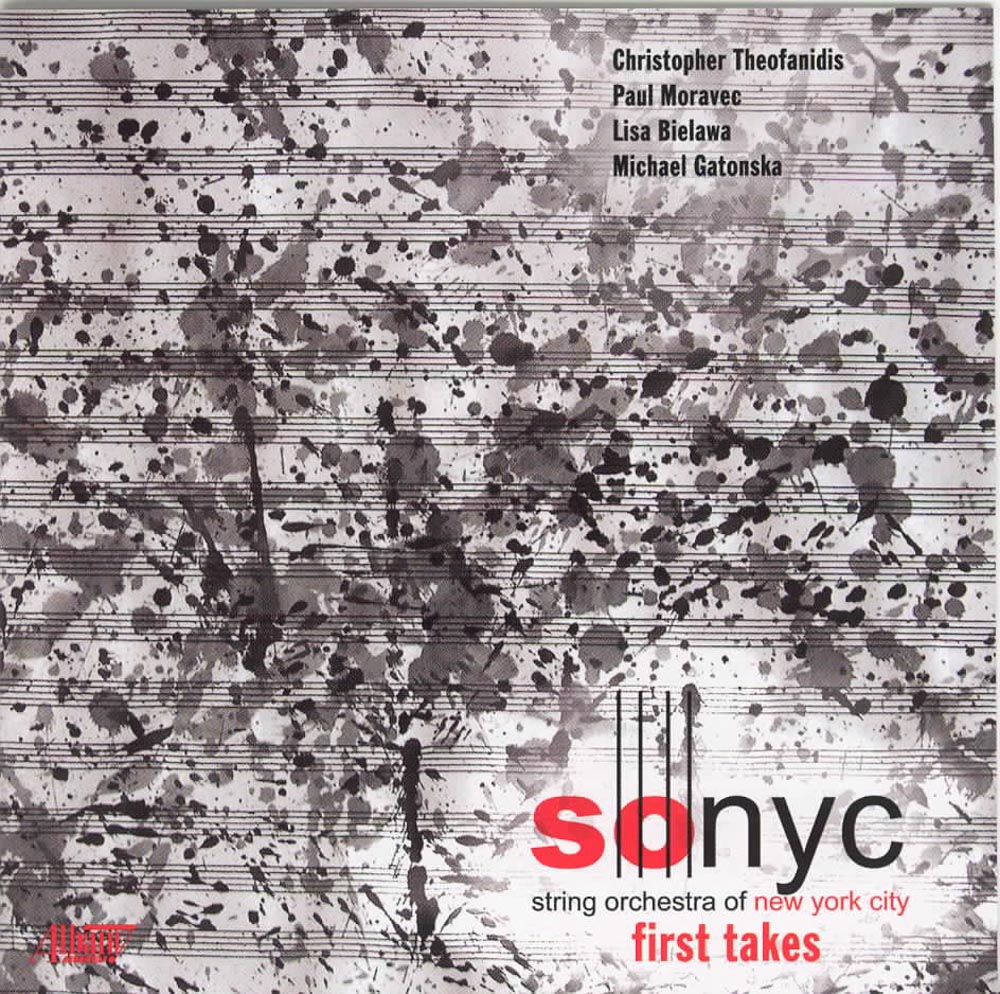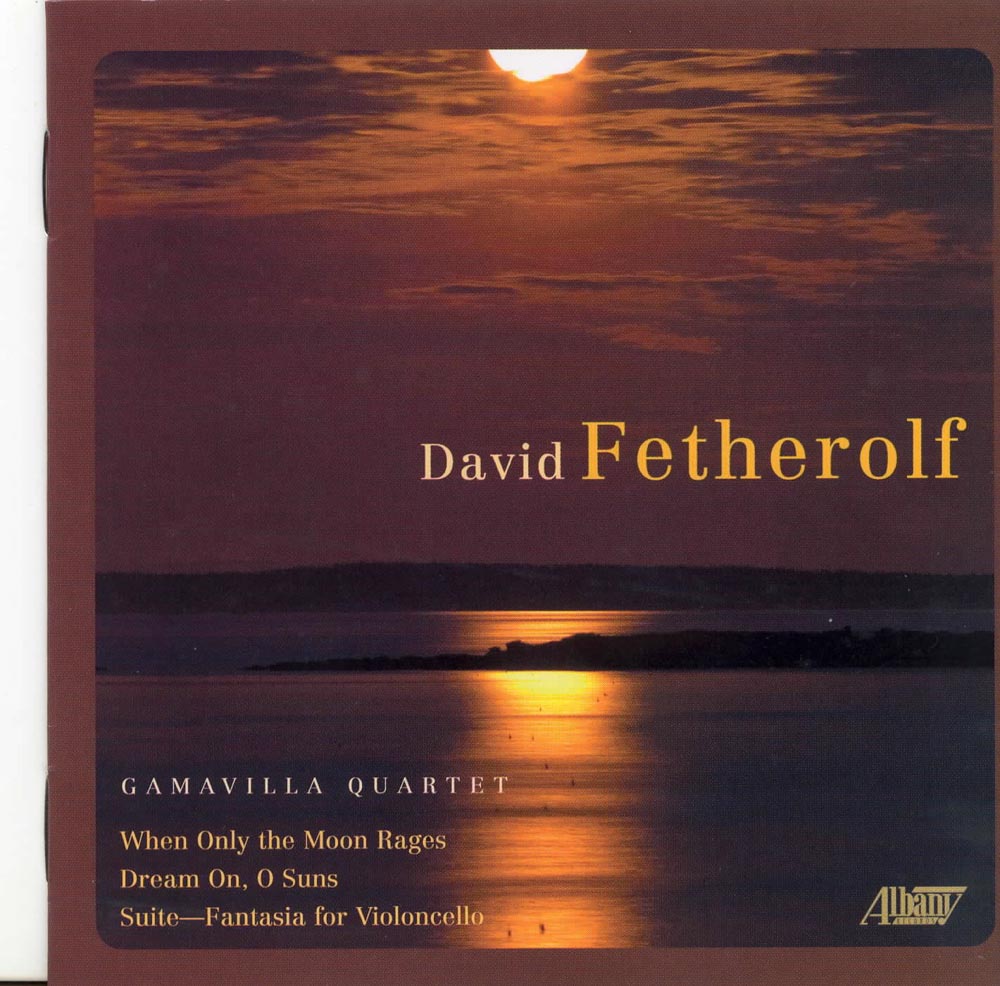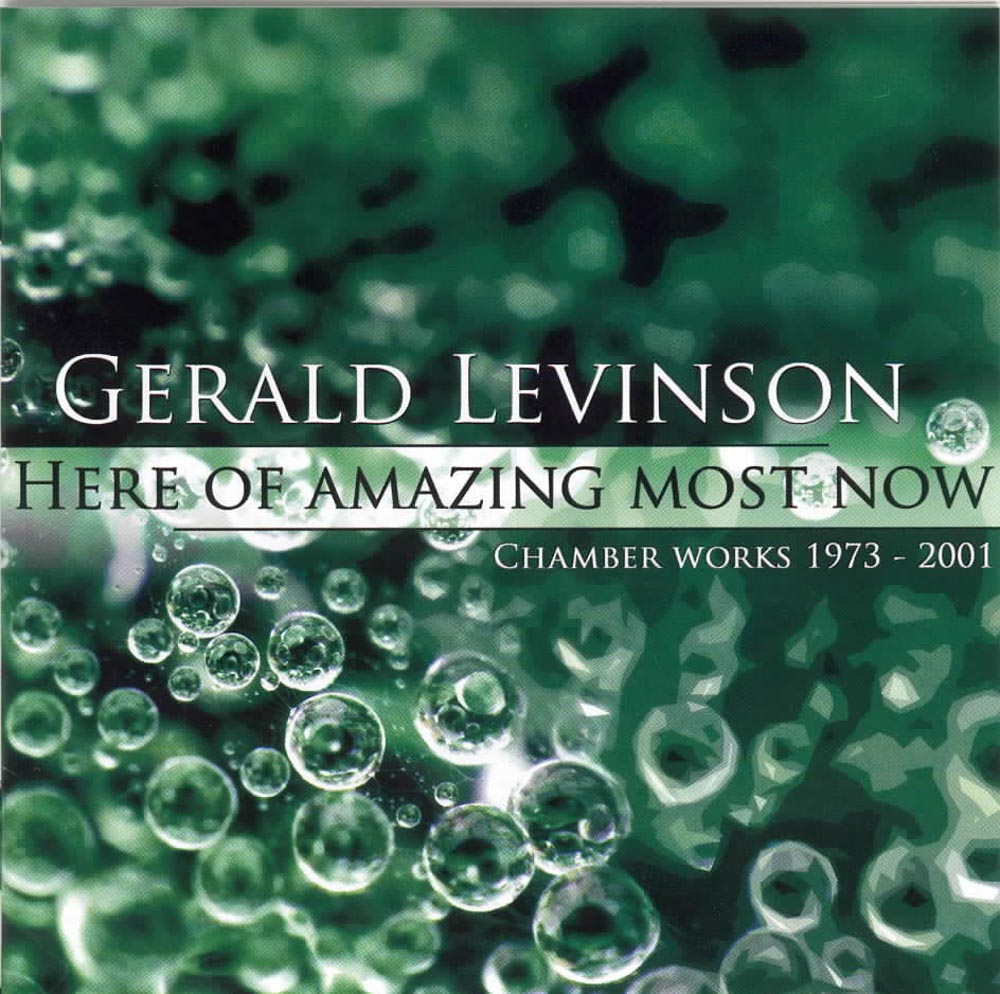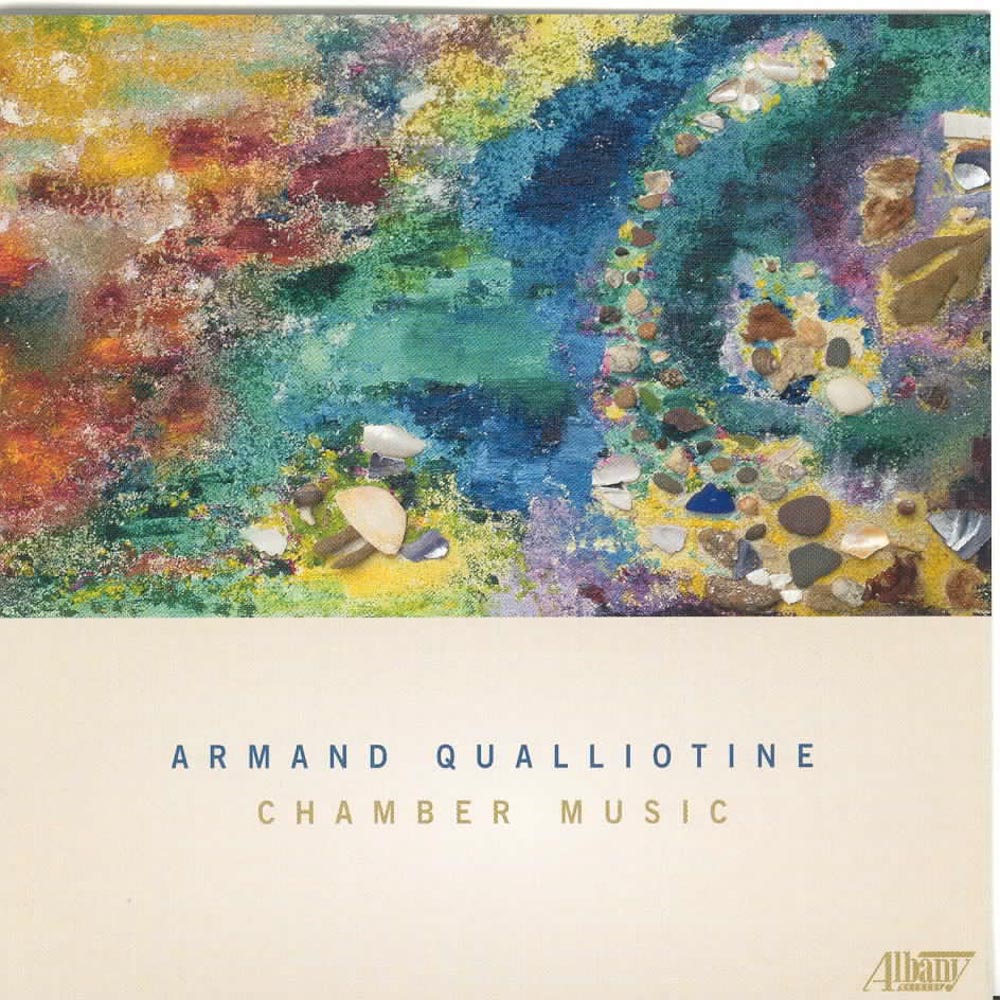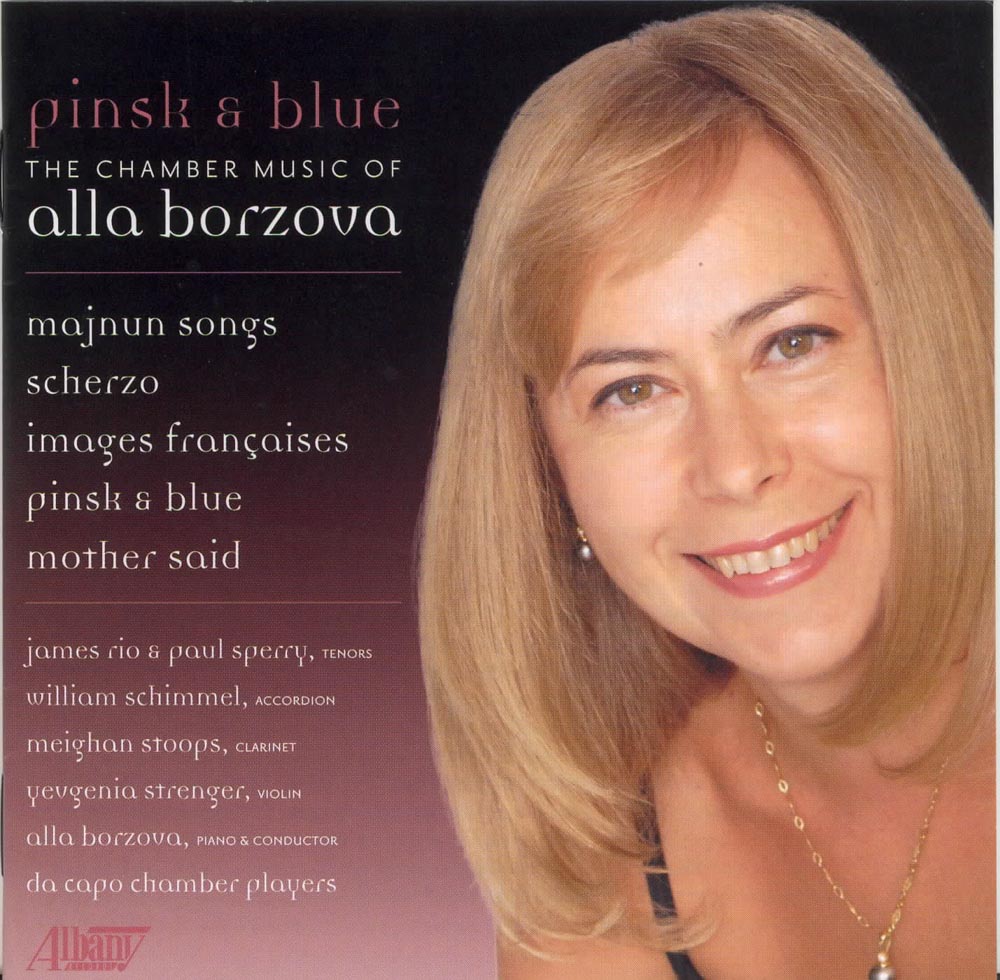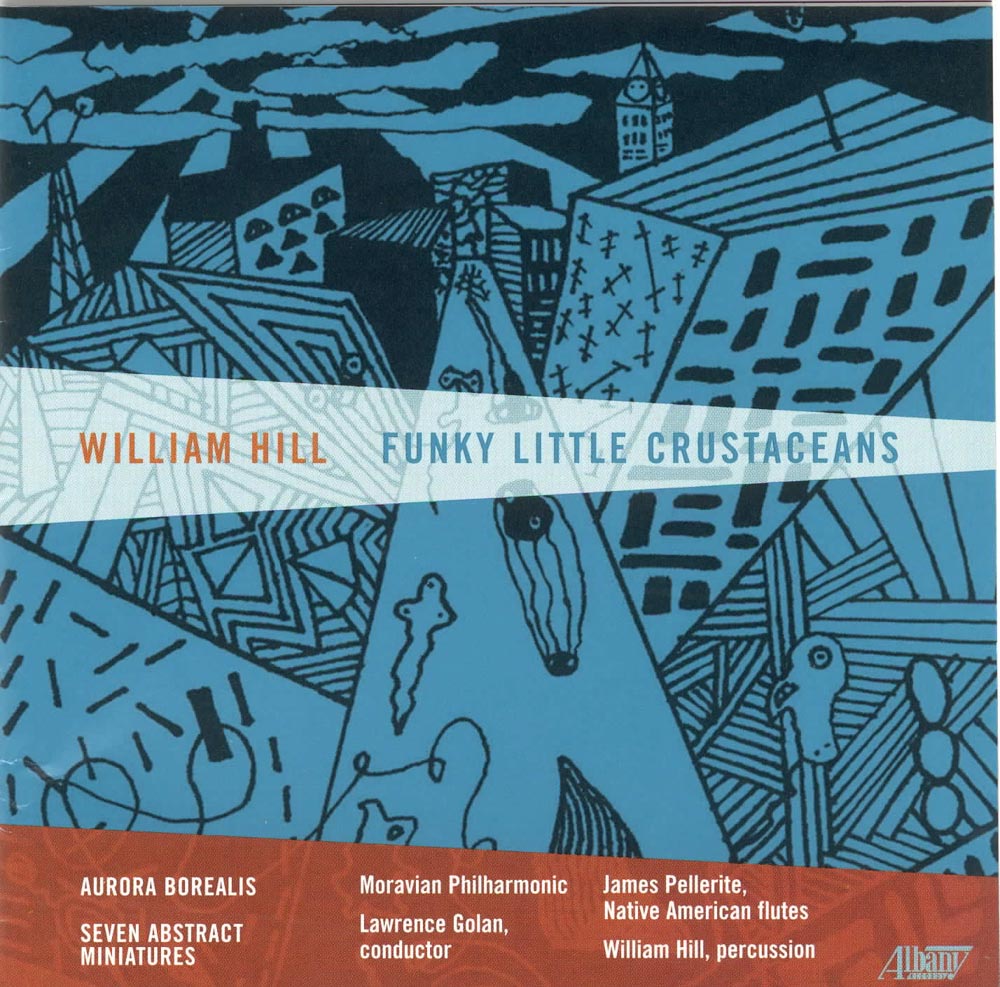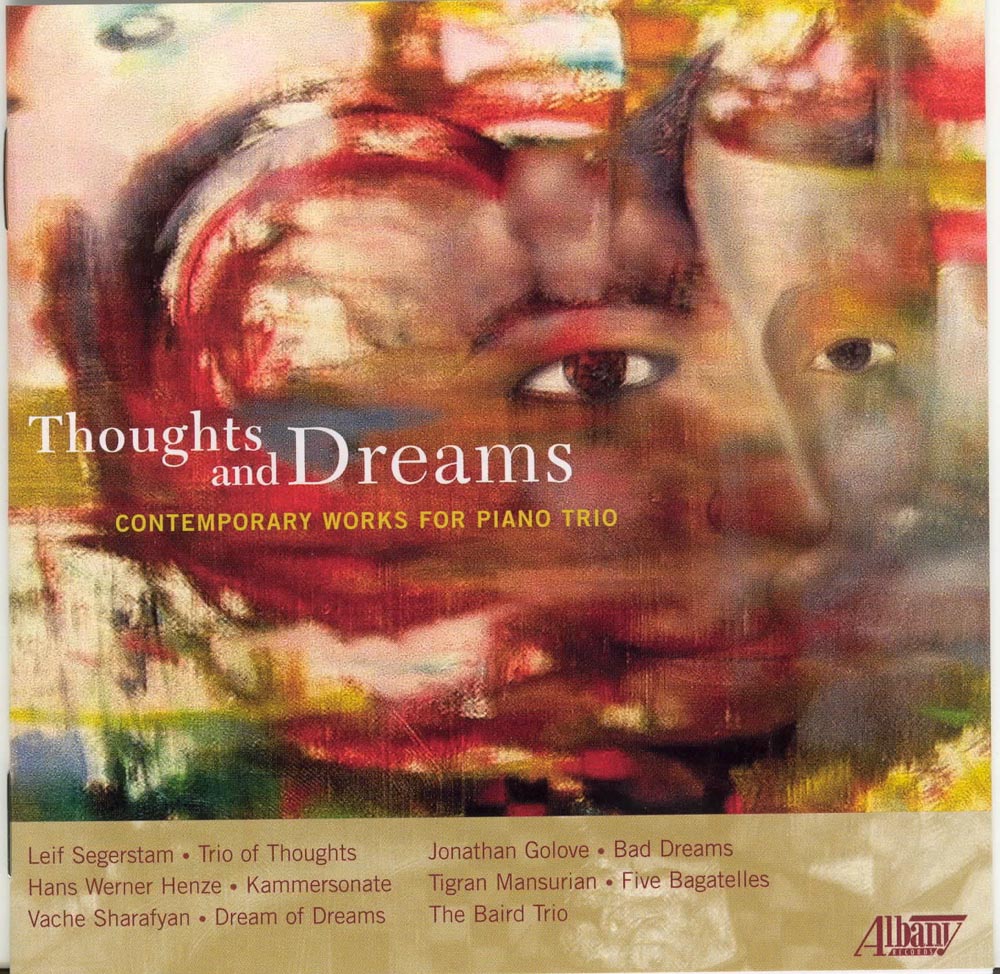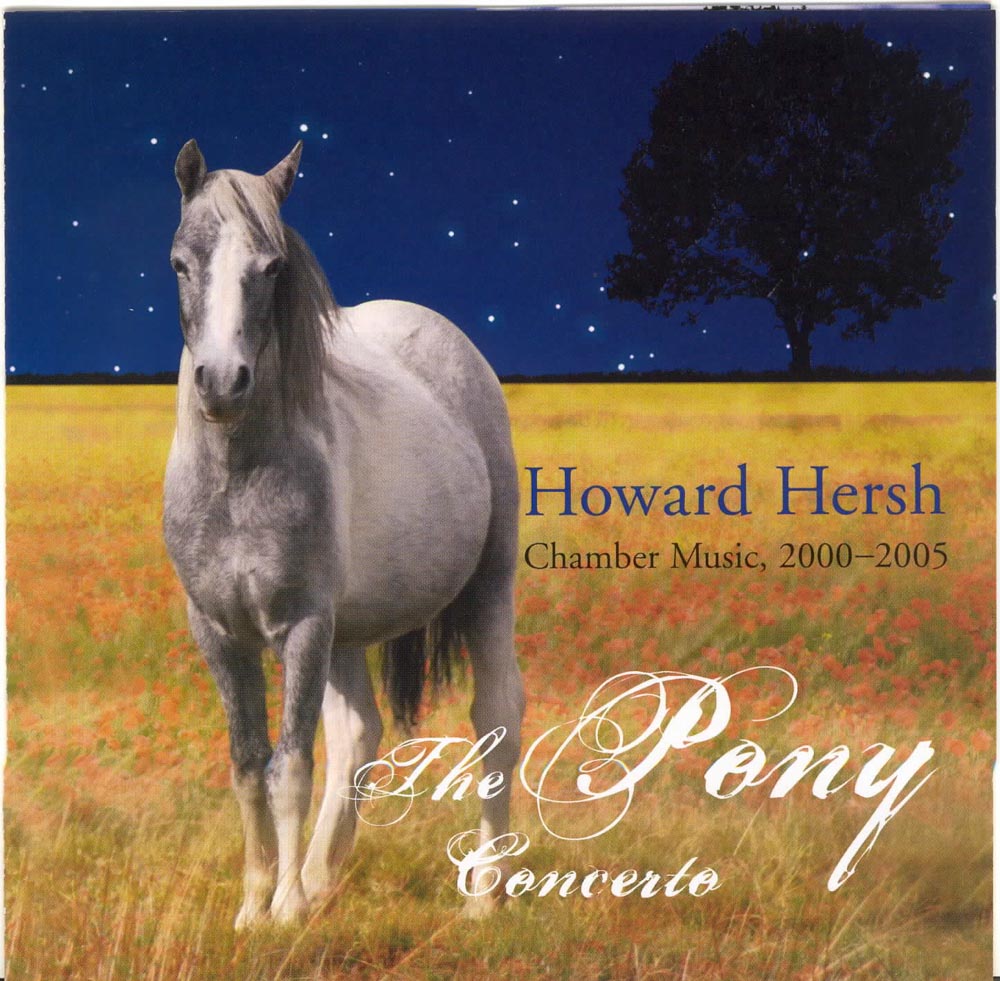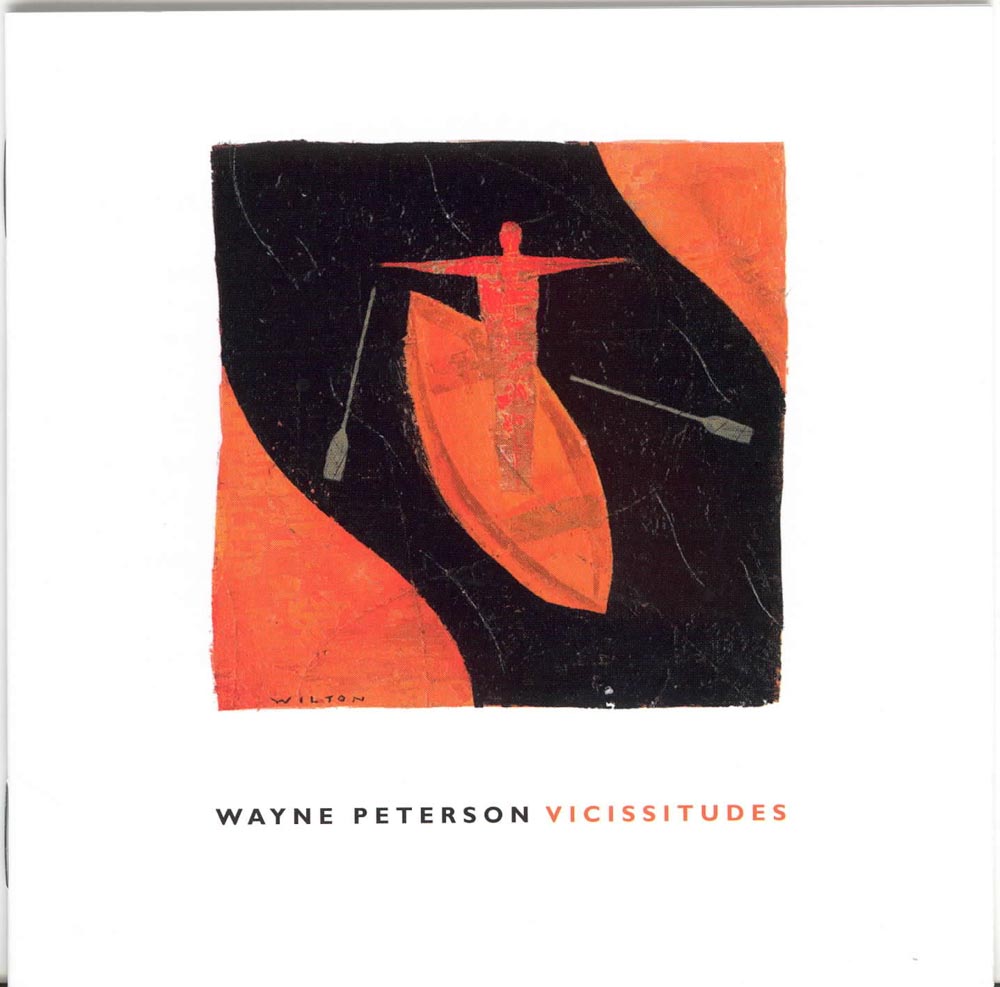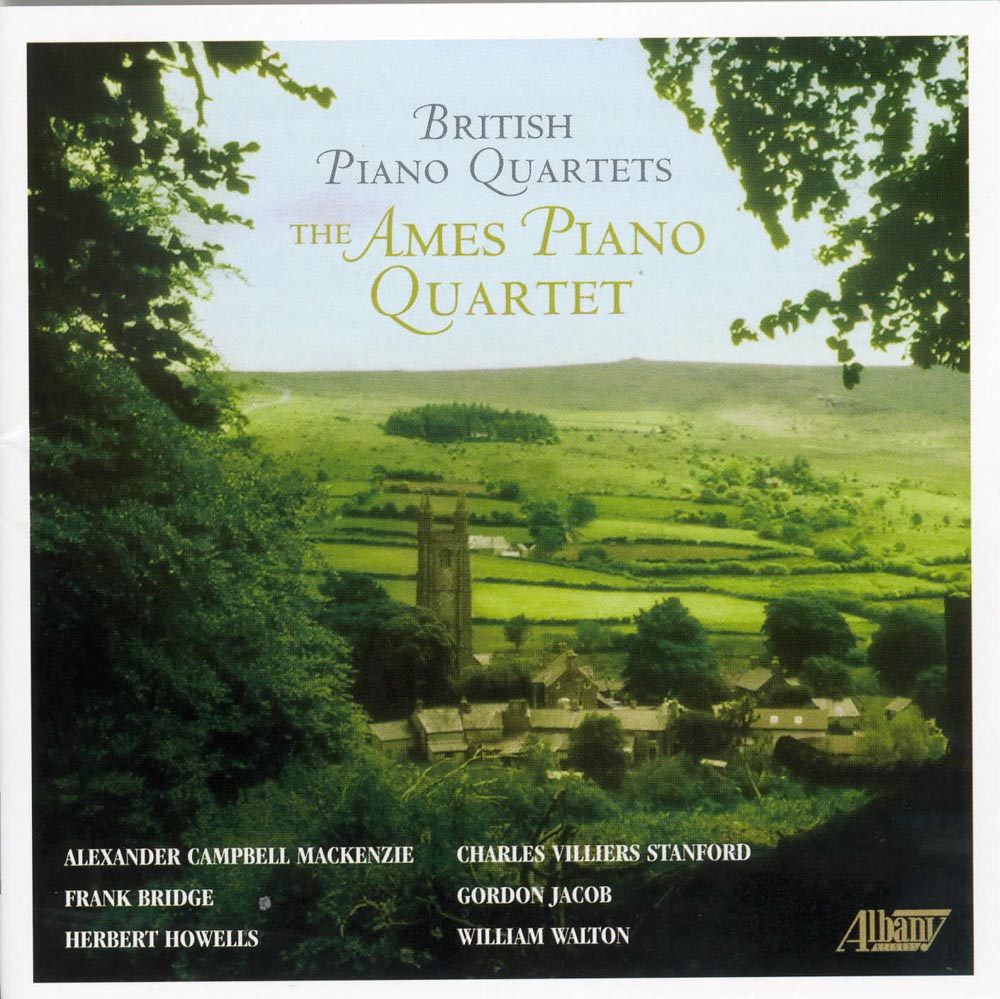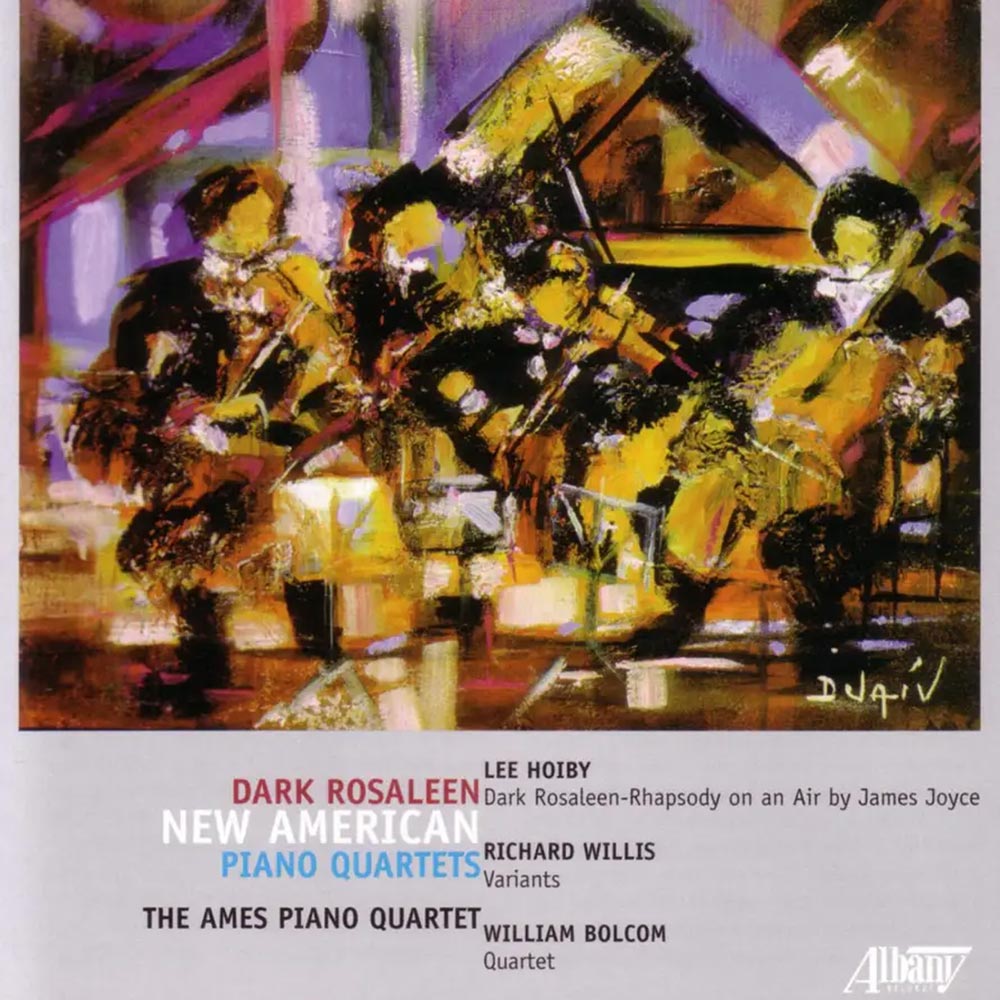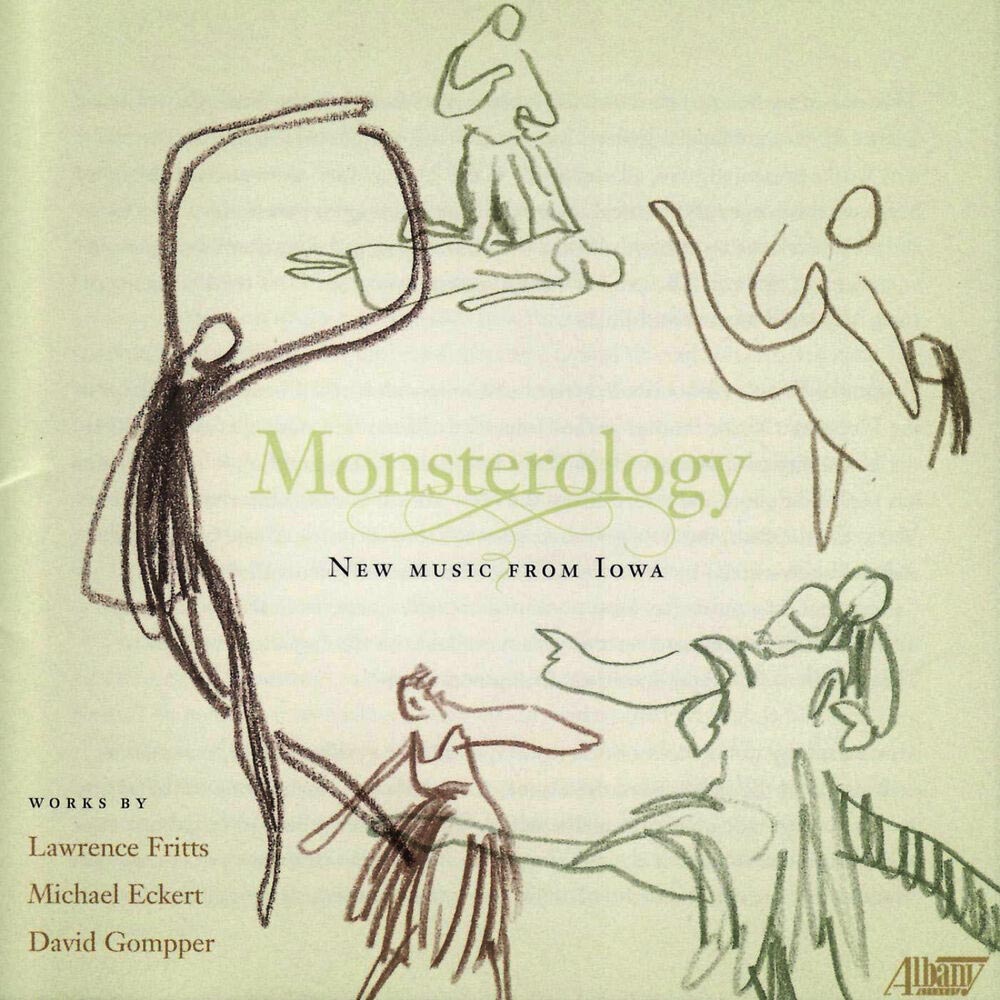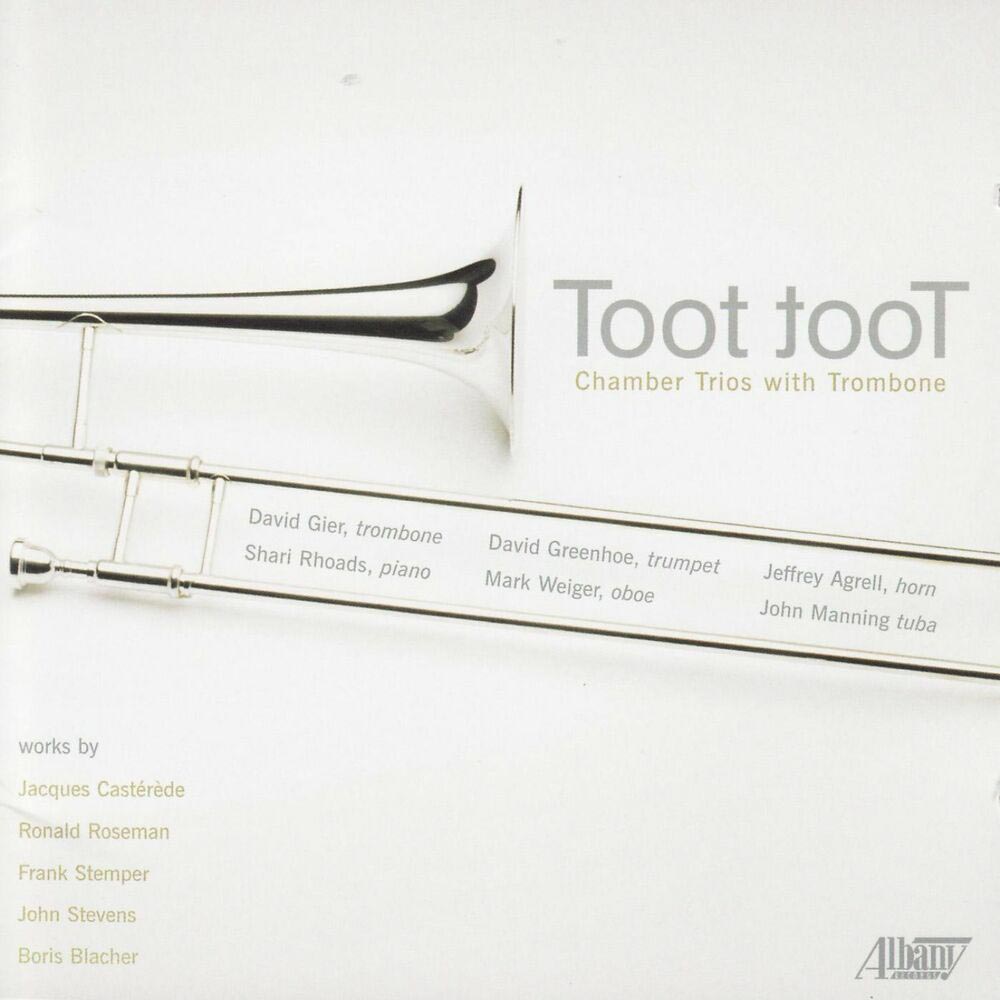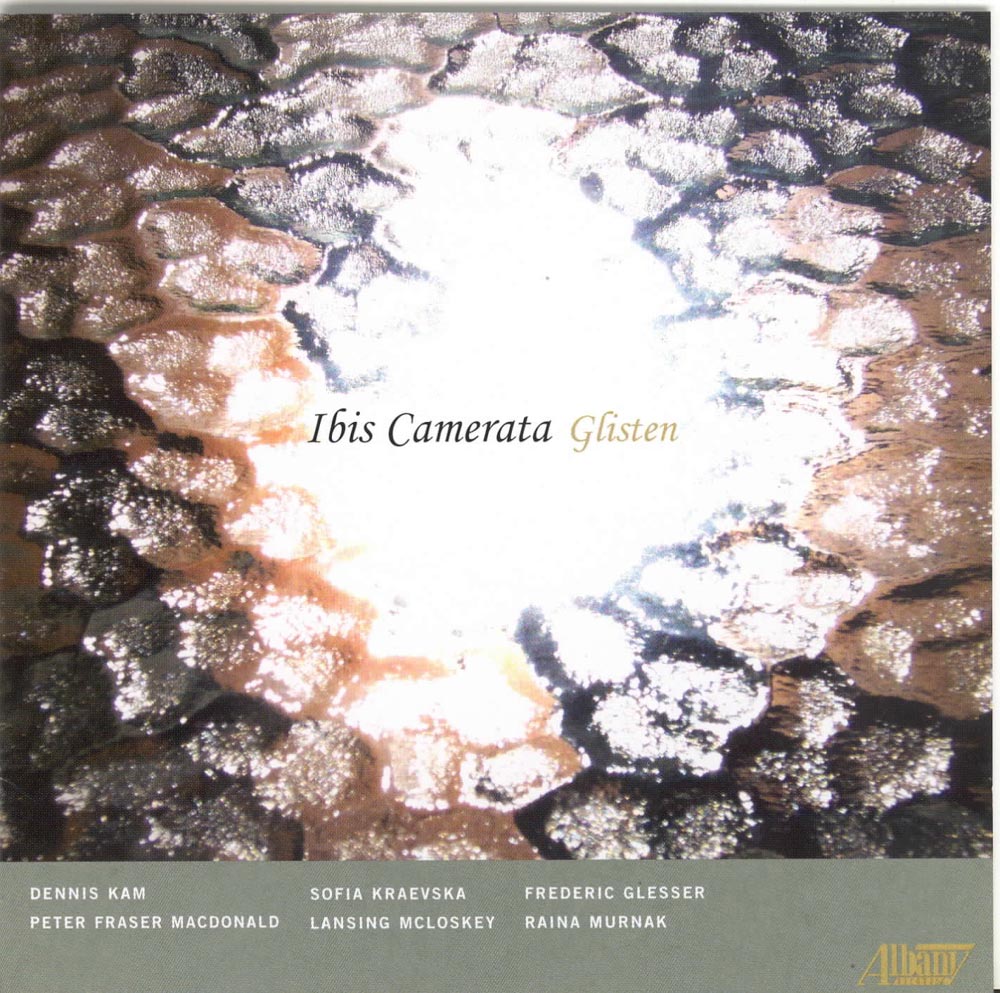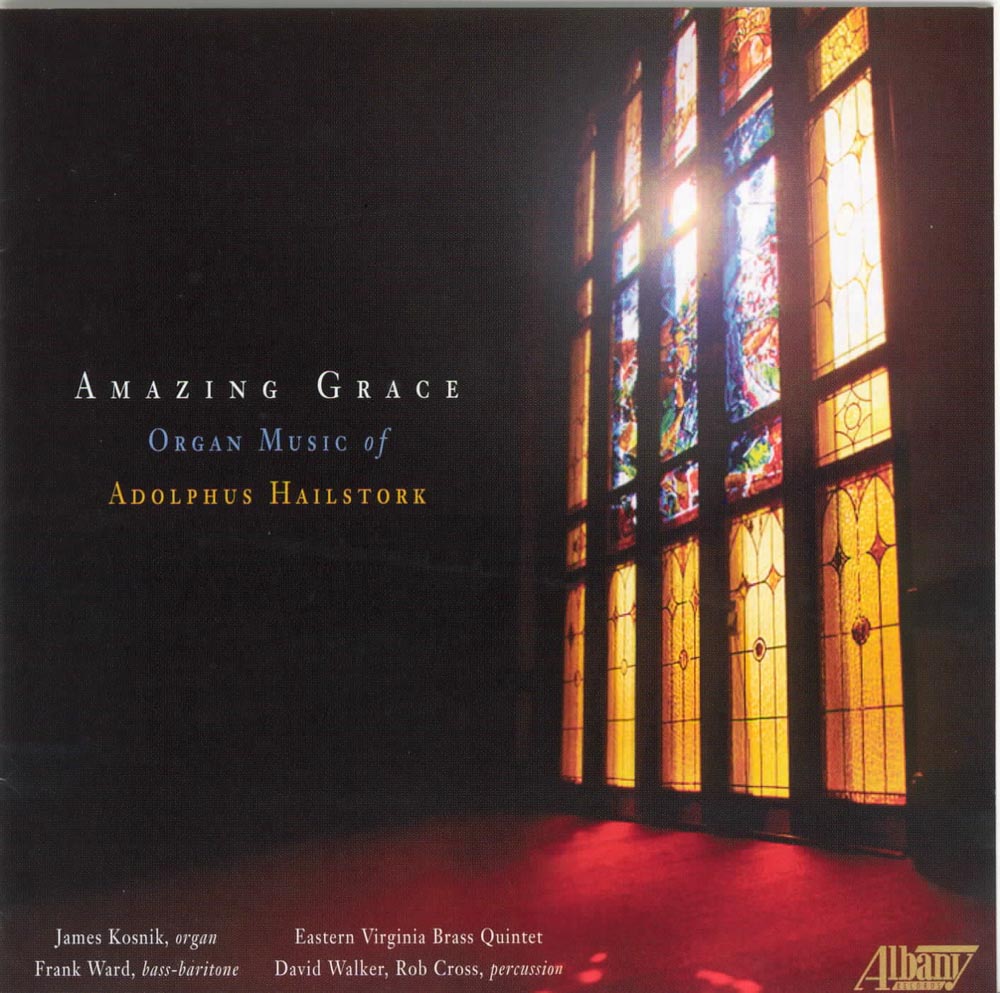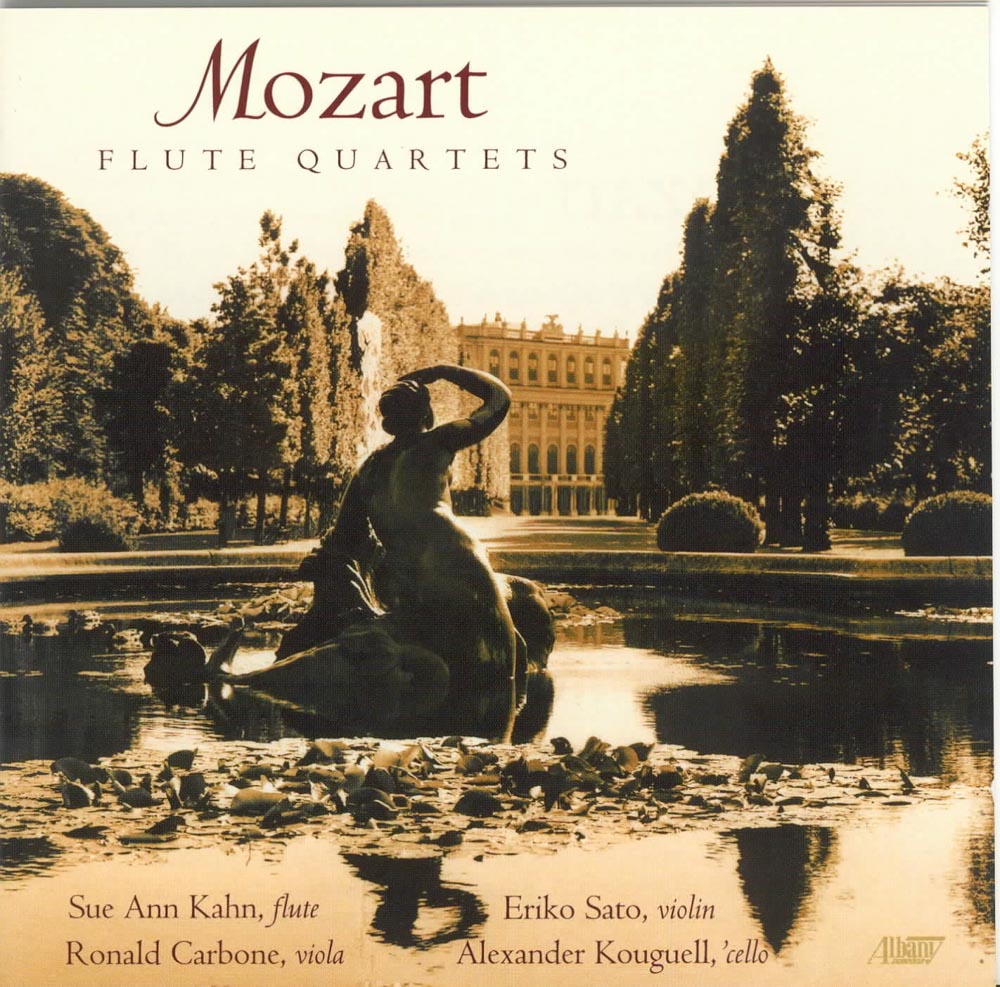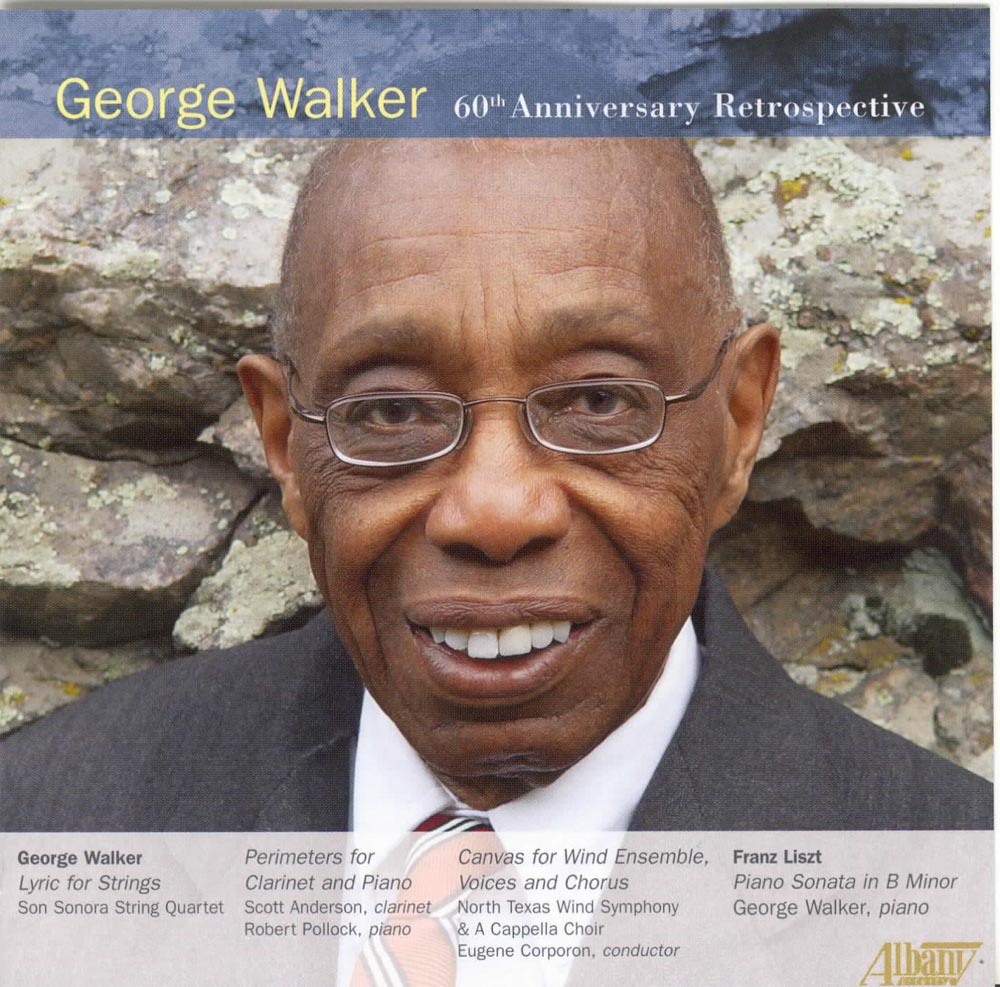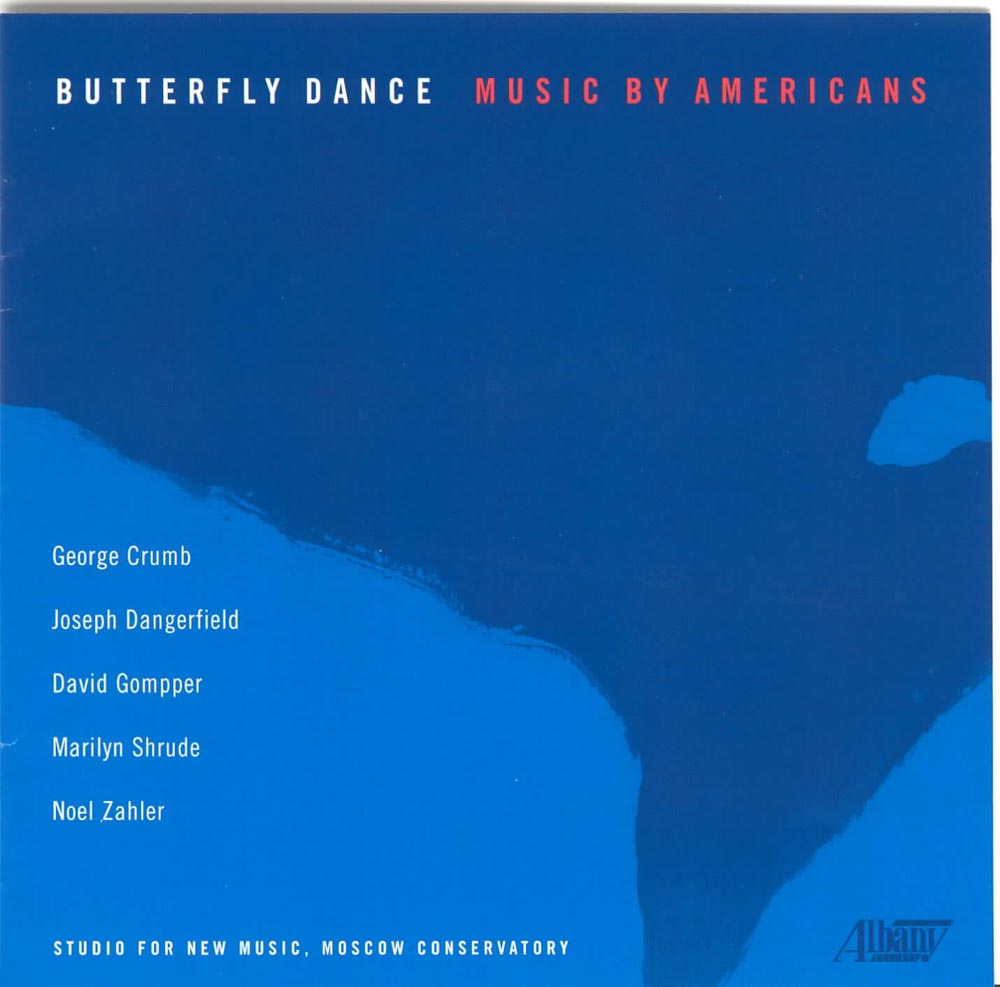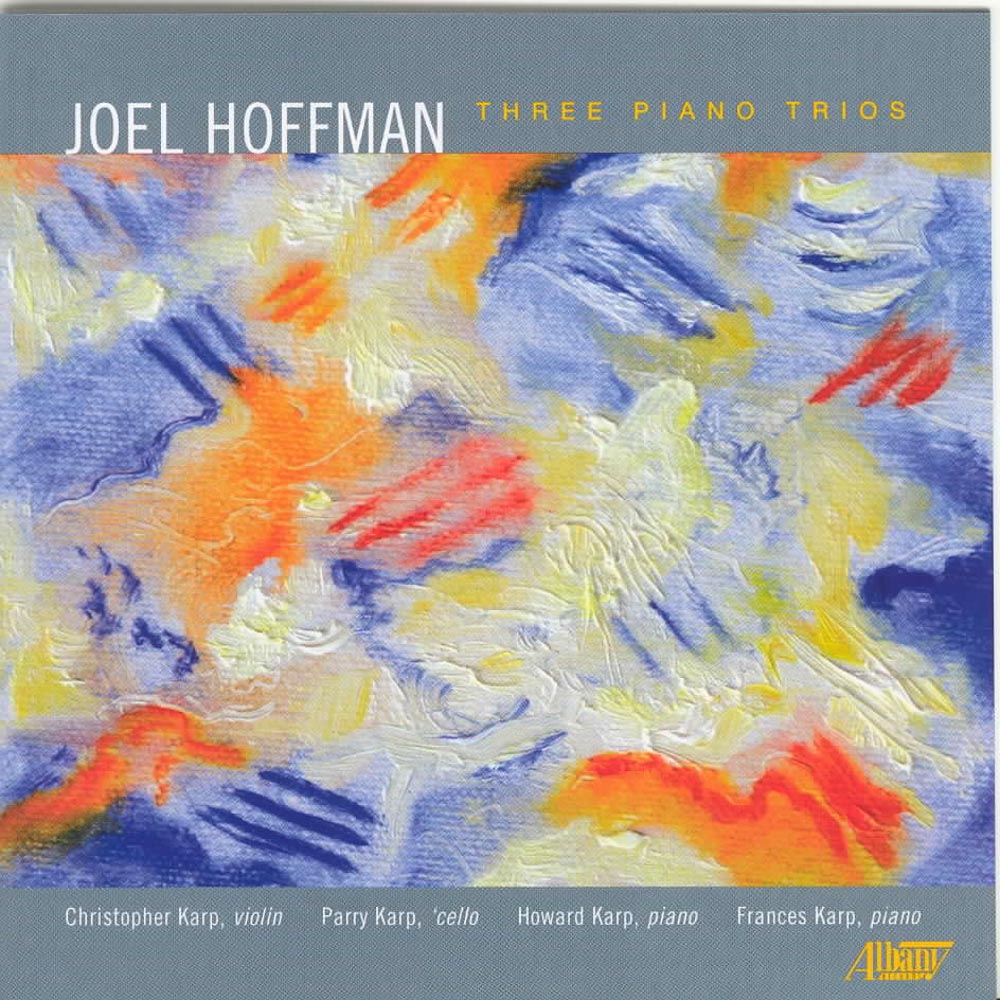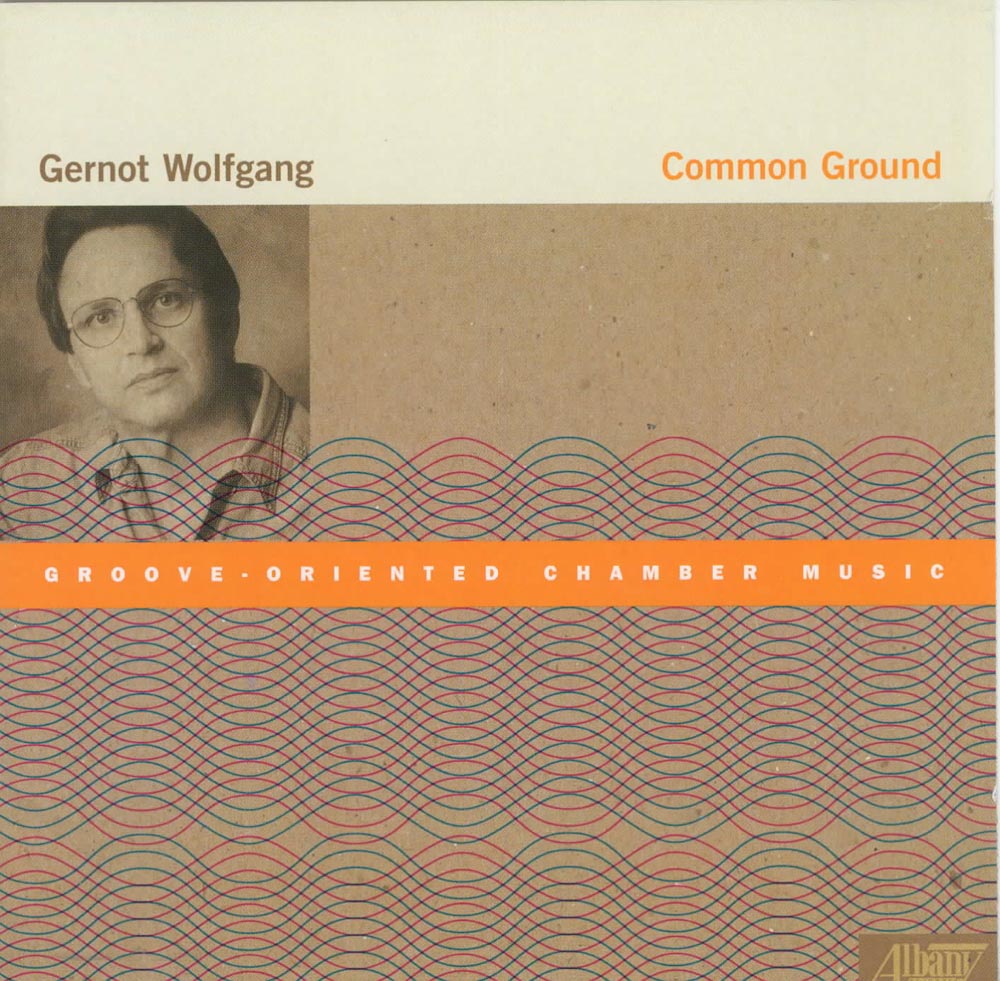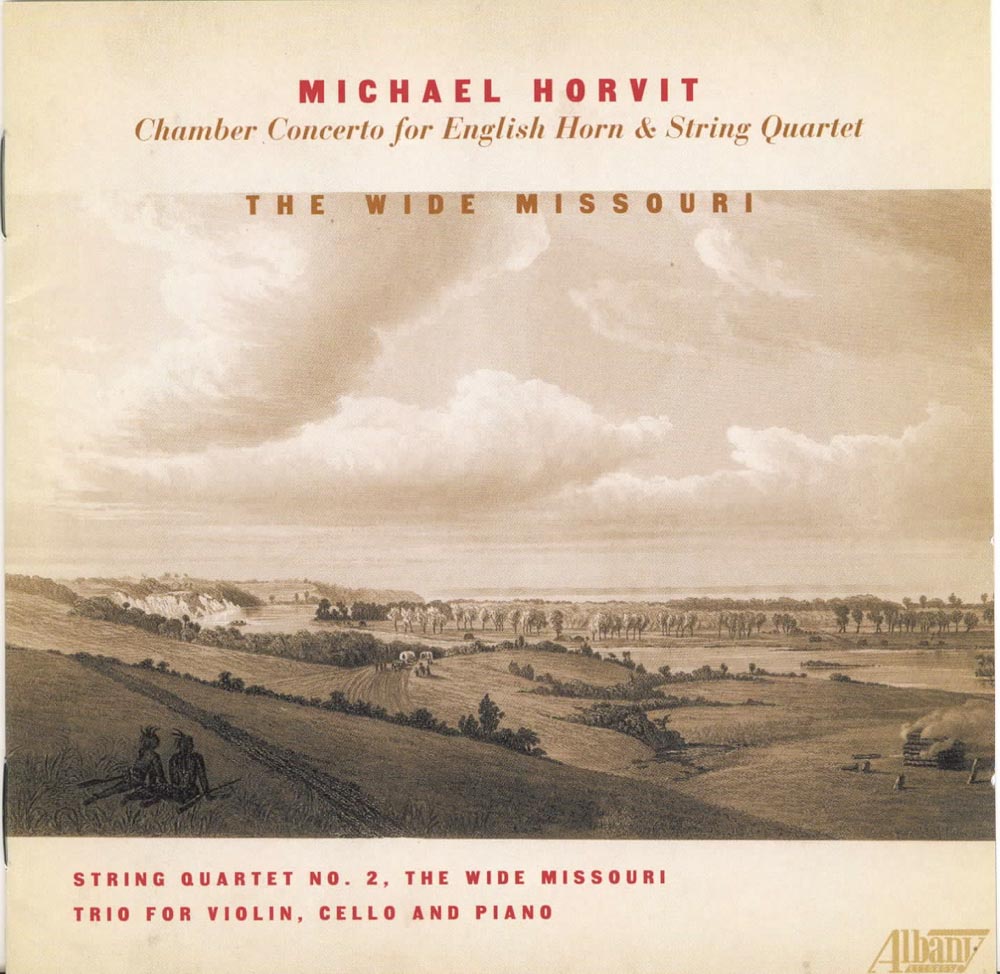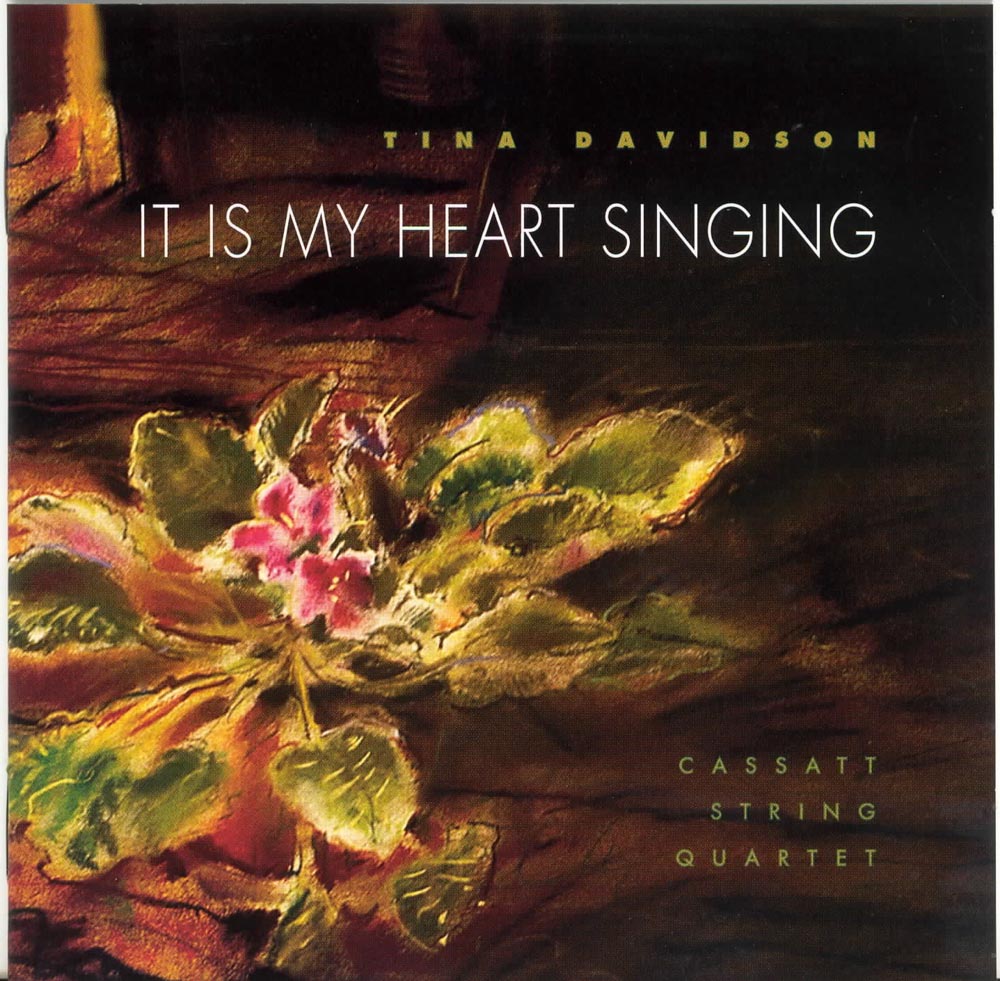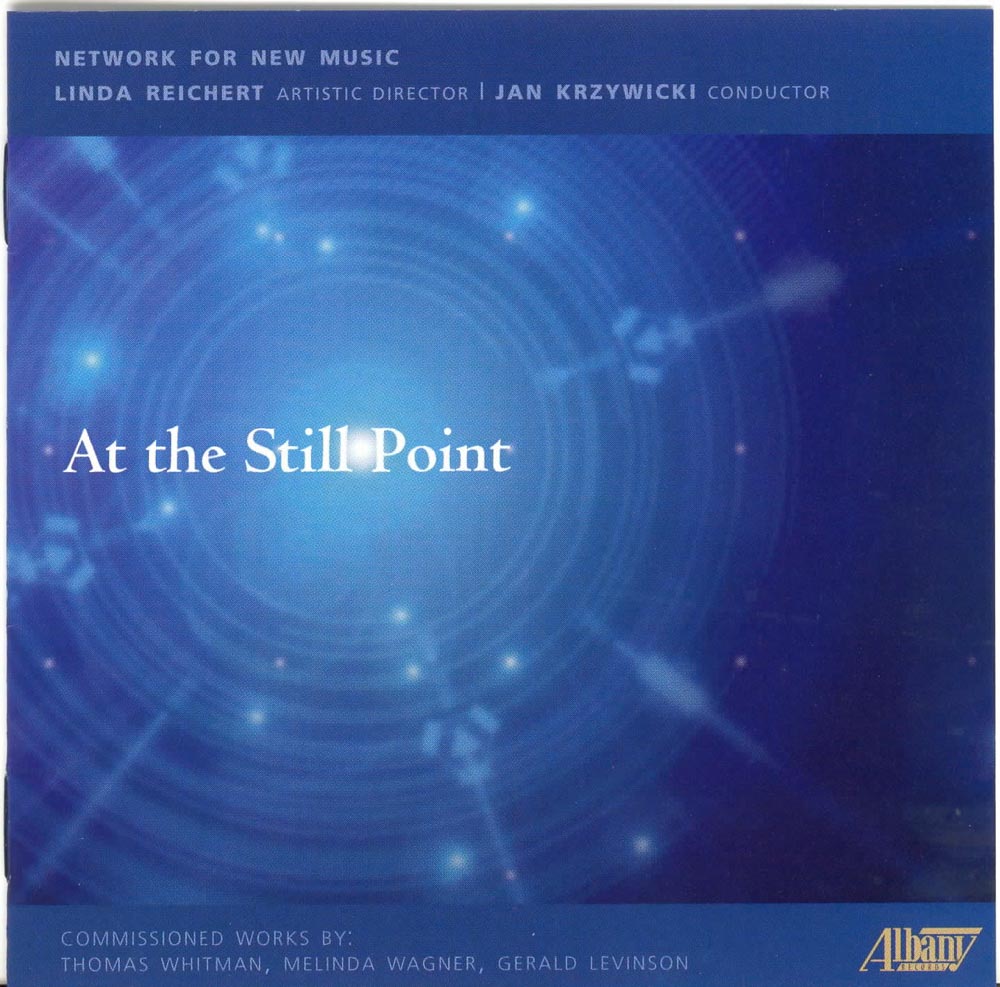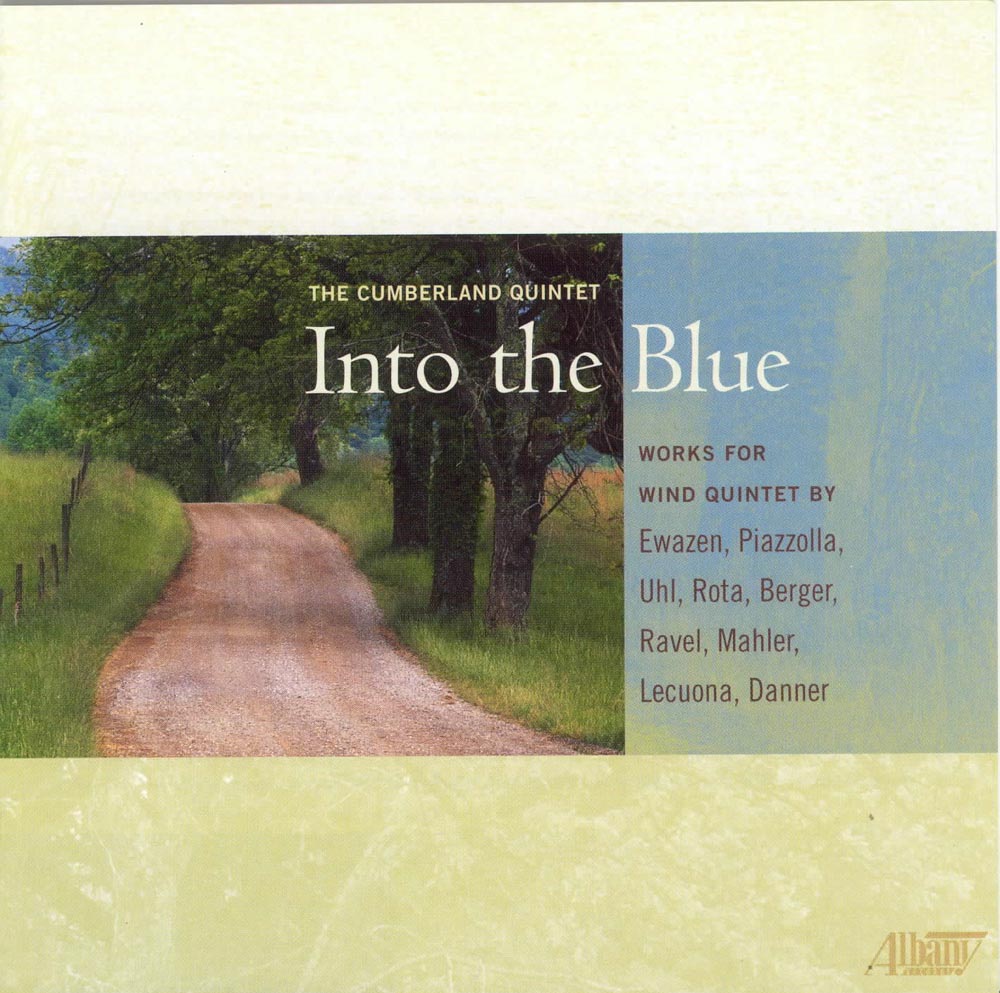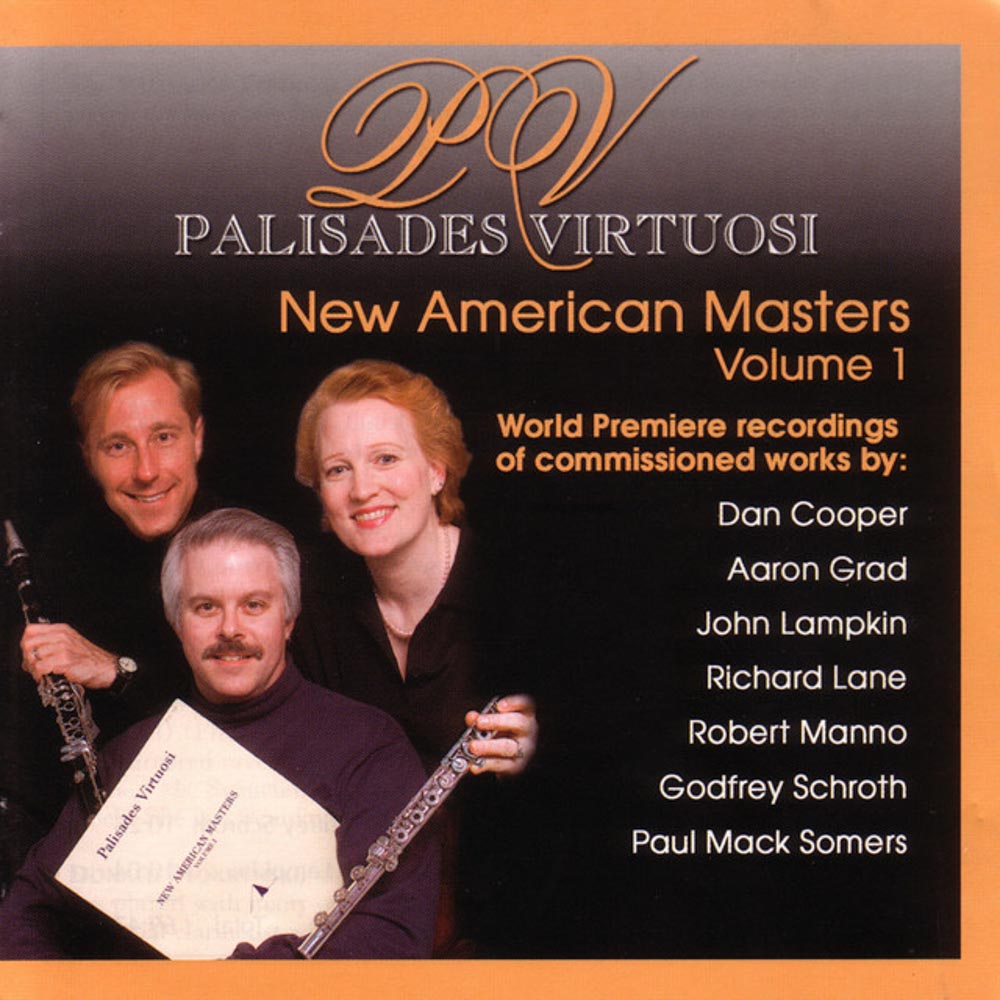Catalog #: TROY0941
Release Date: July 1, 2007Chamber"First Takes" features world premiere recordings of four new works by outstanding American composers from the younger generation: Chris Theofanidis; Paul Moravec; Lisa Bielawa; and Michael Gatonska, beautifully performed by the String Orchestra of New York City (SONYC). SONYC was founded in 1999 and is already acclaimed as one of the leading ensembles in New York City. Performing without a conductor, the individual members each have an impact on the artistic process. Whether performing standard repertoire or the kind of new music on this CD, SONYC strives to inspire and educate its audiences.
Catalog #: TROY0932
Release Date: June 1, 2007ChamberFetherolf's music has been premiered throughout the Americas and Europe. He writes, "I have a special love for the cello; I started life as a cellist. My first large orchestral work was a Concerto for Cello and Orchestra." His affinity for string instruments is beautifully demonstrated by the renowned members of the Gamavilla Quartet of Moravia.
Catalog #: TROY0936
Release Date: May 1, 2007ChamberGerald Levinson was raised in Connecticut and has been increasingly recognized as one of the major composers of his generation. His principal teachers were George Crumb, George Rochberg and Richard Wernick at the University of Pennsylvania, and Ralph Shapey at the University of Chicago. This is the second Albany CD devoted to the music of Gerald Levinson, following TROY742, a collection of three chamber-orchestra works released in 2005. Critic Paul Griffiths has written, "What must thrill anyone who comes into contact with Gerald Levinson's music is its sheer joy in sound, and the decisiveness with which it sings or dances its way through time...In sympathy with sound, in sympathy with time, Levinson's music is close to the natural phenomena on which all music depends. Two things spring from this. One is that his music can easily evoke other natural phenomena: the sea, the stars, rugged landscapes. The other is that this music is in tune with other kinds of music from around the world. Levinson's resources are classical western: he writes for the symphony orchestra, for the piano, and for chamber groupings of conventional instruments. His disciplines, too, are those of the western tradition. But the east was present in his music even before his first trip there. His works, right through his career so far, exist on companionable terms with Mahler's music and with Bali's, with Ravel's and with Japan's, with Messiaen's and with India's, with Stravinsky's and with China's, with America's symphonic tradition and with Tibet's slow melody. Out of all this he is creating, piece by piece, a world of his own."
Catalog #: TROY0935
Release Date: May 1, 2007ChamberArmand Qualliotine was born in Brooklyn, New York. At the age of seven he started his instructions in Jazz Guitar and Electric Bass as well as Music Theory. In 1967 he began his studies of Classical Guitar and Music Theory at Hofstra University. After earning degrees in composition and theory from the Hartt College of Music, SUNY at Stony Brook and Brandeis University, his post-doctoral activities included studying with Pierre Boulez and Milton Babbitt. He has taught guitar, theory, history and composition at Stony Brook, Northeastern University, Brandeis and the Berklee College of Music where is now an Associate Professor of Composition. Awards in his field have included residencies at the MacDowell Colony, the Composers Conference and the Tanglewood Music Center where he was the Leonard Bernstein fellow in composition. He also received the C.D. Jackson Award for outstanding achievement as a composer, First Prize in the Boston ISCM Composition Competition, commissions from Harvard's Fromm Music Foundation, the Stony Brook Contemporary Chamber Players and a 1988 Guggenheim Fellowship. In 2004 he was nominated to be a member of the American Academy of Arts and Letters.
Catalog #: TROY0923
Release Date: May 1, 2007ChamberOne of the most telling indications of a composer's worth in our glutted musical marketplace is the response of one's fellow music-makers: those who create it as well as those who perform it. And in this regard, Alla Borzova, a Russian-trained composer-pianist from Belarus, is fortunate to claim the global microcosm of New York as her adopted backyard. When a composer of exalted stature praises one's music, the informed public tends to take notice. And well they should, when a modern master like John Corigliano speaks of Borzova's "extraordinary voice" and her "arresting and dynamic" music. David del Tredici finds "genius" (it takes one to know one) and "huge emotional impact" in her work. This engaging CD, preserving some of Alla's finest smaller-scale creations, reveals her sponge-like knack for soaking up far-flung musical influences wherever she goes. Arabic flavors - complete with third-tones, vocal quavers and other idiomatic touches - help to bring out the stark tragedy and outright insanity of her lovelorn Majnun Songs. Her American exposure has left her with a new-found taste for American jazz, as heard in her Pinsk and Blue - an amazing piece for accordion and piano. It is not easy to pin Borzova down stylistically - you'll hear everything from unaffected folk-tunes to cunning and sophisticated tone-rows from her.
Catalog #: TROY0922
Release Date: May 1, 2007ChamberEver since 16th century France the term tombeau (French for "tomb" or "tombstone") has denoted a set of poetic or musical compositions honoring the memory of a person, whether eminent or ordinary, real or imaginary. While the authorships of literary tombeaux were quite often collective, music tombeaux were usually created by individual composers and performers (i.e. Ravel's Tombeau de Couperin). It is no surprise that the death of the profoundly influential Claude Debussy (1862-1918) prompted Revue Musicale, a foremost music publication in Paris, to commission pieces from some leading European composers and performers, for a collection of works eulogizing the great composer. Each one of these musicians contributed to Tombeau in a unique and innately personal way, most of the works later becoming known as both individual pieces and parts of larger compositions). Encouraged by the success of Tombeau de Claude Debussy, Revue Musicale came up with another collection honoring the preeminent French composer and pedagogue Gabriel Faure (1845-1924). Composed by seven of Faure's best-known pupils (all French except for the Rumanian Enesco), the suite was completed and published by 1922, while the composer was still alive.
Catalog #: TROY0924
Release Date: April 1, 2007ChamberWilliam Hill has been critically acclaimed as a composer, soloist, visual artist, recording artist and conductor. Currently he is Principal Timpanist with the Colorado Symphony and teaches composition and counterpoint at Denver University's Lamont School of Music. Mr. Hill has served as a composer with the Ohio Chamber Orchestra, National Music Festival, the Colorado and Denver Symphonies, and the Nova Series of Salt Lake City. On a trip with his wife Natalie to Ocracoke Island in the Outer Banks of North Carolina and observing the teeming water life, Natalie remarked, "Wow, check out those funky little crustaceans," and the inspiration for the first work was born, reflecting not only the literal ebbs and flows of the tides, but of the impact made on all creatures by the changes in season and the pacings of life in general. Aurora Borealis, featuring the renowned James J. Pellerite, is an impressionistic tone poem depicting the icy monochromatic stillness of the far North, with gradual hints of color developing into more subtle shadows of the spectrum as the piece evolves. Seven Abstract Miniatures is based on pen and ink sketches by the composer, and shows the interrelationships that can exist between music and art (such as Pictures at an Exhibition).
Catalog #: TROY0921
Release Date: April 1, 2007ChamberRoss Bauer attended New England Conservatory and Brandeis, studying with John Heiss, Martin Boykan, Arthur Berger and Luciano Berio. His honors include a Guggenheim Fellowship, two Fromm Foundation commissions and a Koussevitzky commission. Bauer is a master composer of deeply expressive, highly charged music in a wide variety of genres. Throughout his works, whether they are orchestral, concerti with orchestra or chamber ensemble, or vocal or chamber music, his sense of form and instrumental writing is exquisitely idiomatic and his orchestration crystal clear and dazzling in its color. His vocal writing is particularly beautiful. He pays close attention to the meaning and sound of the texts that he sets, as well as to the formal implications of those texts. This CD, featuring music written in the 1990's for voice with instruments and for instruments alone, makes an excellent introduction to Ross Bauer's work, which traverses a wide range - from tender lyricism to tremendous ferocity. Bauer writes true chamber music in which every part is an essential element of an unfolding line and harmony. While the surface relationships may seem complex, the underlying harmony is always clear, and the pacing of that harmony masterful.
Catalog #: TROY0908
Release Date: April 1, 2007ChamberLooking back over the past 100 years, it would seem that the string quartet has been the most popular outlet for contemporary composers' most intimate thoughts. It may have taken longer for the unique blend of violin, piano and cello to catch up in terms of repertoire, but this remarkable disc displays the diverse voices that can be heard in this form. The Finn Segerstam has been best known as an orchestral conductor and a very prolific composer (as of January 2nd of this year, he had composed 173 symphonies). This Trio is a perfect example of the free-flowing, almost improvisational style he calls "free-pulsative." Needless to say, Hans Werner Henze has now achieved status as one of the world's most significant composers, and his early Kammersonate reflects the neo-classical influences of the post-War era. Both Sharafyan and Mansurian are Armenian. Sharafyan's music is rooted in ancient Armenian culture, while Mansurian's approach is in a more personalized, mystical vein. Finally, the Baird Trio's cellist, Jonathon Golove, has contributed a work using material from an opera based on Dashiell Hammett's Red Harvest. The Baird Trio, in residence at the University of Buffalo, performs a wide range of repertoire, devoting particular attention to rarely heard and recent original works for their medium. The members believe the piano trio has a significant role to play in 21st century musical life.
Catalog #: TROY0914
Release Date: March 1, 2007ChamberHere is a brilliant new CD release by one of the masters of California's thriving new music scene...filled with melodic invention and fluid rhythmic tapestries, this is music of the Heart guided by a keen intelligence - Terry Riley. Howard Hersh was born in Santa Monica and studied piano and composition at Stanford University. Steeped in 20th century modernism, his music has expanded to embrace a variety of tonalities, dance rhythms and quotations, dramatic narratives and explorations of the social conscience. According to the composer, his work is driven by a search for "the nexus of musical abstraction and representational humanity." A recipient of grants and awards from organizations that include Meet the Composer, the American Symphony Orchestra League, the American Composers Forum and the Rex Foundation (the non-profit wing of The Grateful Dead), his works have been performed at Tanglewood, Grace Cathedral and throughout Europe. Together with his compositional work, Hersh has directed many new music groups, including Music Now and the San Francisco Conservatory New Music Ensemble, which he founded, and has served as Music Director of radio station KPFA-FM.
Catalog #: TROY0912
Release Date: March 1, 2007ChamberWayne Peterson's music is that of a composer who embraces and takes delight in the hands-on process of making music, especially as it relates to the combinations and interactions of various instruments and their sonic possibilities. In a very real sense the musical ideas appear to evolve naturally from these capabilities without in any way being limited by them. As he writes in the program notes for Duodecaphony for viola and cello, "I welcomed the opportunity to address anew the problems of melody, counterpoint, harmony and timbre as they applied to this somewhat restricted choice of strings." A winner of the 1992 Pulitzer Prize in Music for his orchestral work The Face of the Night, the Heart of the Dark, Peterson's music is marked by a wonderful rhythmic fluidity, which derives from his experience as an accomplished jazz pianist. Perhaps most importantly, Wayne Peterson's musical language is at once sophisticated and direct in its approach to the listener; it never compromises its basic integrity. In his hands the instruments are agents of luminous beauty, beckoning us to even deeper aesthetic pleasures. Peterson's music can also be heard on TROY601, 689 and 766.
Catalog #: TROY0910-11
Release Date: March 1, 2007ChamberDuring one of his recital tours to Edinburgh during the 1860s and 1870s, Anton Rubinstein bluntly told Alexander Mackenzie Sie haben keine Komponisten (You [Britain] have no composers). From his account in his engaging memoir A Musician's Narrative (1927), Mackenzie apparently let the comment pass unanswered. After all, the Russian virtuoso was simply voicing a view widely heard in continental Europe - and even in Britain as well. Many years later, as he surveyed a career that had spanned six decades, Mackenzie noted with "many gleams of satisfaction" the number of important musicians and composers of high merit who had come along. In company with his slightly younger contemporaries, Hubert Parry, Charles Villiers Stanford and Edward Elgar, Mackenzie was himself part of the generation of musicians born in the mid-19th century who first demonstrated that Britain did have composers - and fine ones. Their successors - among them Vaughan Williams, Frank Bridge, Herbert Howells and William Walton - completed the transformation of European opinion. Along with presenting a compilation of signal British contributions to the piano quartet repertoire, this set offers a sample of the music of some of the very composers who helped deliver British music from its lowly state as a source of jests to a place of international recognition and esteem.
Catalog #: TROY0730
Release Date: February 1, 2005ChamberLee Hoiby writes about this recording: “The Ames Quartet worked closely with me on the development of Dark Rosaleen, collaborators from the word go, and continually bless it with loving insights and efforts. Together we have explored some evocative remnants of James Joyce c. 1900; Mangon, the deranged Dublin litterateur of the 1830s; and the dolefully passionate Hibernian ethos. As I myself am a Midwesterner who has chosen to express himself musically in a classic European vocabulary, it is gratifying to hear the Ames players of Iowa display their great reservoirs of nuance and schwung and historical imagination. They are simply superb musicians and I warmly thank them.” William Bolcom writes about the performance of his work: “Your performance is the most emotionally intense I have heard…you sustain the emotional curve extremely well…the slow tempo (of the last movement) pays off at the end – really frightening! I don’t compose quite as I did 30 years ago, but the feeling of the piece seems so present right now. Where we are today had its roots in that time. The Intermezzo seems particularly sad to hear at this moment, and you have played it with much personality.” Richard Willis’ Variants, commissioned in 1990 by Quadriga (a piano quartet then in residence at Texas Tech University), follows similar principles to Hoiby’s Dark Rosaleen. It, too, is a set of variations built upon a melody presented first by the viola, in which an internal interval (this time a minor second heard in the first two pitches), serves as the principal unifying element of the composition. Both begin with a haunting quality and then present the motive in a variety of guises ranging from virtuoso to angular to jazzy to lyric, highlighting the late 20th century composer’s dual interests in maintaining a tightly controlled form based upon restricted motivic material, while still exploring a wide range of moods.
Catalog #: TROY0900
Release Date: February 1, 2007ChamberThis recording features works by members of the composition faculty of the University of Iowa School of Music: Michael Eckert, Lawrence Fritts and David Gompper. The six new works presented here, all composed in the 21st century, showcase a diversity of harmonic languages and musical materials, from Gompper's post-tonal centricity to Eckert's neo-classic atonality to Fritt's use of mathematical algorithms and computer-generated timbres. Lawrence Fritts is Associate Professor of Composition and Theory and director of the Electronic Music Studios at the University. His composition teachers were Shulamit Ran, John Eaton and Ralph Shapey. Another pupil of Ralph Shapey is Michael Eckert, also an Associate Professor of Theory and Composition. He has won the Bearns Prize for Composition from Columbia University and a Charles Ives Scholarship from the National Institute of Arts and Letters. David Gompper is Professor of Composition and Director of the Center for New Music at the University. Gompper has lived and worked as a composer, teacher, conductor and pianist in England, Nigeria and, most recently, Russia. The project was sponsored by a grant from the University of Iowa Arts and Humanities Initiative.
Catalog #: TROY0899
Release Date: February 1, 2007ChamberIt's been nearly a decade since the music of the Common Sense Composers' Collective first surfaced on CD. Their first disc challenged the rarified asceticism of the then still-reigning though waning contemporary music orthodoxy with joyous abandon. Even the disc's cover, featuring eight clearly fun-loving folks, already dented the wall of solemnity that is suggested by the ubiquitous dour tweed-suit mug shots on the covers of many contemporary music recordings. But, ultimately, it was the sheer persuasiveness of the music that crashed down those walls. This group is now entering its second decade and so far has commissioned 62 new works. The pieces contained on this new release were originally written in 1996 in collaboration with the members of the Alternate Currents Performance Ensemble. They are joined on this CD by the New Millennium Ensemble, a mixed sextet of winds, strings, piano and percussion founded in 1990. The mission of all the performers heard on this disc, remains one of collaboration and community. They workshop the compositions through a process one would find more in the dance world than in the classical music world. Many of these works, which began with Common Sense, have found a new home with The New Millennium Ensemble, underlining a new collaborative dynamic and sense of joy in music-making.
Catalog #: TROY0894
Release Date: January 1, 2007ChamberSeveral currents in modern music have contributed to the present body of chamber music that includes trombone. Without question, jazz trombonists have influenced composers with their persuasive presence and ear-catching explorations of the trombone's technical and expressive capabilities. Other influences include academia, producing exceptional brass players, and the instrument's affinity for theatricality and offbeat sounds have led to the increasing presence of the trombone in the music of our time. Naturally, with the prominence of such players as Stuart Dempster, John Swallow and Christian Lindberg, major composers have been prompted to write with the trombone in mind. Hence, the remarkably diverse and striking works on this CD. David Gier began his professional career as a member of the Springfield, Massachusetts, Symphony Orchestra and with orchestras and ensembles in the northeast. He currently teaches trombone and brass at the University of Iowa and has been an active performer and clinician at various venues and workshops. Gier's students have been prizewinners in numerous solo competitions and have won trombone positions with many professional ensembles. Before moving to Iowa, Gier served for six years on the faculty of the Baylor University School of Music.
Catalog #: TROY0886
Release Date: December 1, 2006ChamberThe Ibis Camerata was formed in 2001 at the University of Miami's Frost School of Music and is made up of four of the school's most talented and accomplished doctoral graduates. Coming from varied cultural and musical backgrounds, they have been able to combine their unique talents to form one of North America's premier young ensembles. As the group explains, "The idea for this project slowly evolved as a result in our involvement in the musical life of the University's School of Music. Since our formation in 2001, the group has actively performed the works of composers at the University of Miami, most notably those of Dennis Kam, who is the chair of the department of music theory and composition. All of the composers featured on this CD are in some way linked to the University. Dennis Kam, Peter MacDonald and Lansing McLoskey are currently faculty members of the School of Music. Sofia Kraevska and Raina Murnak are graduate students and teaching assistants to Kam, and Frederic Glesser is a former student of Kam. Our ultimate goal was to create a CD that represented the diversity of sounds and variety of styles that have developed from the University of Miami's composition department."
Catalog #: TROY0873
Release Date: December 1, 2006ChamberA student of H. Owen Reed, Vittorio Giannini and David Diamond, Adolphus Hailstork has written numerous works for chorus, solo voice, various chamber ensembles, band and orchestra (his Symphony No. 1 can be heard on Albany TROY104 and works for chorus can be heard on TROY156). Significant performances by major orchestras (Philadelphia, Chicago and New York) have been conducted by leading names such as James dePriest, Lorin Maazel, Daniel Barenboim and Kurt Masur. Dr. Hailstork resides in Virginia Beach, Virginia and is Eminent Scholar and Professor of Music at Old Dominion University in Norfolk, Virginia. He also has a connection to our area in upstate New York; he writes, "I began taking organ lessons in the 1950s as a member of the boy's and men's choir of the Episcopal Cathedral of All Saints in Albany, New York. During my last two years in high school I served as the organist/choir director during the summer. Several decades later I returned to the instrument as organist/choir director at the Unitarian Church of Norfolk, Virginia. In the 1990s I also resumed organ lessons with Dr. James Kosnik (the soloist on this CD), a colleague of mine on the faculty of Old Dominion University. I have written several works for my own service use at the Unitarian Church and for concert use for advanced performers such as Dr. Kosnik."
Catalog #: TROY0884
Release Date: November 1, 2006ChamberThroughout her career, flutist Sue Ann Kahn has been acclaimed for her virtuosic and sensitive performances of music of all periods. She was honored with one of the first Solo Recitalist Fellowships from the National Endowment of the Arts in recognition of her outstanding gifts as a flutist and received the American New Music Consortium Award for distinguished performances of contemporary music. She is a member of the Jubal Trio, the League ISCM Chamber Players and other ensembles. Ms. Kahn has received consistent praise for her solo and chamber music recordings (her highly popular disc of music of Jacques Ibert, Jacques Around the Clock, is on Albany TROY145). Formerly Professor of Music at Bennington College, Ms. Kahn teaches flute and chamber music at Mannes College of Music, at New York University, and in the Music Performance Program at Columbia University, and gives master classes and recitals nationwide. She has served as President of the National Flute Association, and has been consistently active as an advocate for the flute and its music.
Catalog #: TROY0880
Release Date: November 1, 2006ChamberIn 1945 George Walker became the first black graduate of the renowned Curtis Institute of Music. The centerpiece of his graduation recital was the Liszt Sonata in b-minor, newly recorded here as an anniversary celebration. Along with this work are representative examples of Walker's art as a highly expressive, original composer who writes in a "tough," sinewy modern style but whose works reveal a distinct, American lyricism. George Theophilus Walker was born in Washington. His early years were notable for his performances in New York's Town Hall, and his appearances with Eugene Ormandy and the Philadelphia Orchestra in the Rachmaninov Piano Concerto No. 3. His first composition, the String Quartet No. 1, appeared in 1946 and the second movement, Lyric for Strings, is performed on this new CD. Walker has composed over 90 works for orchestra, chamber orchestra, piano, strings, voice and solo instruments. In 1996 he was the first black recipient of the Pulitzer Prize for Music for Lilacs, for Voice and Orchestra. Walker is a true American treasure, and we are proud to release this latest disc in a series devoted to his compositions and performances from the piano repertoire (these can be heard on TROY 117, 136, 154, 252, 270, 411, 523 and 697).
Catalog #: TROY0883
Release Date: October 1, 2006ChamberFinally! This is undoubtedly the first commercial recording of the Virgil Thomson Cello Concerto (whose first movement provides the title for this disc) since the classic old Columbia recording with Luigi Silva from the early 1950s, and it's in SACD sound! This delightful work, wearing its Americana on its sleeve but couched in the framework of a classic work such as the Haydn, is full of the kind of joyful, melancholy and eccentric moods and hymn-tunes one hears in the classic Thomson film scores and orchestral works. The Four Portraits, adapted from the more than 140 piano pieces he wrote of friends, artists and acquaintances, were adapted by Silva; the Frederic James Portrait is an original by Thomson in this form. Charles Fussell has a link to the great American past as he studied with Bernard Rogers at the Eastman School, and his music maintains a traditional sound with somewhat more advanced touches. Hailed by John Williams and others as "an outstanding cellist and truly dedicated artist," Emmanuel Feldman has emerged as one of the most innovative cellists of his generation. Known for his intense, soulful playing and a broad range of repertoire, he enjoys an active career as a soloist, chamber musician, recording artist and champion of new music, having given premieres of works by Aaron Kernis, Gunther Schuller, David Diamond and himself.
Catalog #: TROY0882
Release Date: October 1, 2006ChamberDavid Gompper is Professor of Composition and Director of the Center for New Music at the University of Iowa. Butterfly Dance represents a response to and a re-imagining of a native-American Hopi Indian tune of the same name. Noel Zahler is director of the School of Music at the University of Minnesota. In his Trio, Zahler draws upon a conventional ensemble in order to create a composition with an intense drive, and possessing a full and varied sound palette. Marilyn Shrude is a faculty member at Bowling Green State University where she chairs the Department of Musicology/Composition/Theory. Secrets is a setting of nine Emily Dickinson poems, each of which are associated with one or more of the seasons of the year. Joseph Dangerfield is Assistant Professor of Music Composition and Theory at Coe College in Cedar Rapids, Iowa. The Waves Roll On...is drawn from the Russian lyric poet Fedor Tyutchev (1803-73), whose vivid imagery served as the impetus from which Dangerfield crafted his melodic, rhythmic and formal structures. Finally there is a major chamber work, Vox Balaenae, by one of America's most important composers, George Crumb. Founded in 1993, the Studio for New Music is one of the leading contemporary music groups in Russia. As a project initiated by Joseph Dangerfield, this CD showcases not only the varied styles of these American composers but highlights the universal nature of contemporary music.
Catalog #: TROY0875
Release Date: September 1, 2006ChamberGrowing up in Buenos Aires, Pablo Ortiz took piano lessons from his mother and learned Gregorian Chant at the Universidad Catolica Argentina, where he also studied composition with Gerardo Gandini. At the age of 27 he came to the United States where he studied under Mario Davidovsky. After moving to the San Francisco Bay Area in 1994 he developed a particular fascination with Mexican culture, eventually employing texts by the famous Chicano poet and Mission artist, Francisco Alarcon for a collection of children's songs and the title work on this disc, Oscuro. Ortiz's output, comprising chamber music, vocal, orchestral and electronic works, has received international recognition and performances by the Arditti Quartet, Speculum Musicae, Les Percussions de Strasbourg and Continuum. During the early 1990s, Ortiz embarked on a series of works that find a connection between tango and memory. Although this exploration represents only one of many strands within his varied oeuvre - one that is well represented on this CD - Ortiz's association with the tango is apt, for he shares its Argentinean roots, its thoroughly cosmopolitan history, and its ability to mirror social interactions with controlled, dramatic flair.
Catalog #: TROY0864
Release Date: September 1, 2006ChamberJoel Hoffman was born in Canada and received degrees from the University of Wales and the Juilliard School. Among his distinguished teachers were Elliott Carter, Milton Babbitt, Alun Hoddinott and Easley Blackwood. Currently, Hoffman is Professor of Composition at the University of Cincinnati's College-Conservatory of Music. His music has been commissioned and performed by the Cincinnati Symphony, the National Chamber Orchestra, the American Harp Society and the Atheneum Quartet of the Berlin Philharmonic. His compositions draw from such diverse stylistic sources as Eastern European folk music and bebop jazz. There are two qualities that are common to all of his works: a focus on melody and a pervasive rhythmic vitality. The three Piano Trios represent, in his words, "...a kind of central musical point for me, in that the medium incorporates three instruments with which I have the greatest and most intimate connection possible: my mother was a superb violinist, the cello is the instrument of my cellist-brother Gary and the piano is my instrument. So composing for this medium, for me, is about as natural an activity as composing gets. I find that my essential musical questions about sound, structure, harmony, melody and meaning in general are the ones I continually address when writing for the piano trio."
Catalog #: TROY0854
Release Date: August 1, 2006ChamberBorn in Bad Gastein, Austria, Gernot Wolfgang is a graduate of USC's "Scoring for Motion Pictures and TV," and also holds degrees from the Berklee College of Music in Boston and the Austria University of Music in Graz. He has received commissions from individuals and organizations such as the Los Angeles Chamber Orchestra, the Verdehr Trio, bassoonist David Breidenthal, flutist Susan Greenberg and the Jazz Bigband Graz. As a guitarist with the Austrian ensemble "The QuARTet," he has recorded two critically-acclaimed CDs. He currently resides in Los Angeles. He writes, "As a former jazz guitarist, rhythms are a top priority for me. Specifically, rhythms (grooves) that can be found in 20th century music styles such as jazz, rock, pop, world music, etc. I have made it my mission to find ways of organically incorporating grooves into orchestral or chamber music settings, hence the subtitle of this CD. That doesn't mean that all of the music is based on grooves all of the time, but grooves play important roles within the individual pieces. My goal is to allow them to have an equal standing among other compositional devices already established in contemporary concert music."
Catalog #: TROY0853
Release Date: July 1, 2006ChamberPeter Ré studied at Juilliard and the Yale University School of Music, where he studied with Paul Hindemith, and received a Bachelor of Music degree in 1948 and at Columbia University for a Master of Arts Degree in 1950. In his 33 year career at Colby College, Professor Emeritus Ré taught courses in music theory and composition, music history and conducting. Ré has received commissions for works from the Portland and Bangor Symphony Orchestras and the Portland String Quartet (the String Quartet No. 3). He has received awards from the Maine State Commission on the Arts and Humanities for his work as Conductor and Music Director of the Bangor Symphony Orchestra. His twelve-year tenure in that position brought about major changes in the constituency, size and performing ability of the orchestra, which transformed it into a major cultural resource for Maine and which attracted guest artists of international reputation. The works on this recording have been performed by, among others, the Juilliard, Hungarian, Bay Chamber, Vaghy and Portland Quartets. The founding members of the Portland String Quartet have been together since 1969 and have performed in all the major venues of the world. They have received particular attention for their complete cycles of the chamber music of Bloch, Chadwick and Piston.
Catalog #: TROY0851
Release Date: July 1, 2006ChamberMichael Horvit is Professor of Composition and Theory at the University of Houston Moores School of Music. For 25 years he served as music director at Congregation Emanu El in Houston. During his studies at Yale University, Tanglewood, Harvard University and Boston University, Horvit's teachers were Aaron Copland, Lukas Foss, Walter Piston, Quincy Porter and Gardner Read. In other words, Horvit is one of the last links between the great American Symphonic School and today's music. Not surprisingly one can hear echoes of this illustrious past in such works as the Cullen Overture and Concerto for Brass Quintet and Orchestra (on TROY265, works for orchestra), resplendent pieces which conjure up great open vistas and exuberant optimism. This exceptional disc of chamber music further reveals his traditionalist style, particularly in the String Quartet No. 2, "The Wide Missouri," whose thematic material is mostly based on one of his favorite folksongs, Shenandoah. This is truly heartfelt American music. More of Horvit's music can be heard on TROY134 and TROY533.
Catalog #: TROY0842
Release Date: June 1, 2006ChamberBorn in Stockholm, Sweden, of American parents, Davidson spent her first three years living in the town of Malmo on the Baltic Sea. She later lived in Istanbul, Turkey, and, as a teenager, in Wurzburg, Germany and Tel Aviv, Israel, finally settling down in Oneonta, New York. Her mother, a professor of English literature, recognized her musical talents and started her on piano at an early age. She studied later at the Wurzburg Conservatory and Tel Aviv University. In the early 1970s, she went to Bennington College, Vermont, where she studied with Henry Brant and Vivian Fine. Over the years Davidson's music has been commissioned and performed by the Philadelphia Orchestra, the American Composers Orchestra, Relache Ensemble and Orchestra 2001, among many other ensembles. She has created works of integrity and fascination, honing an individual and expressive style. She has an ear for vivid harmonies and colors. Full of tender, haunting melodies that grow expansively, generously and graciously, her music is real, harmonic and sophisticated. Here are three works performed by the renowned Cassatt Quartet, now celebrating its 20th anniversary. In Paper, Glass, String and Wood, all twelve parts are played, through over-dubbing, by the Quartet, revealing its famed virtuosity and commitment to challenging, original new music.
Catalog #: TROY0838
Release Date: May 1, 2006ChamberNetwork for New Music is an award-winning chamber music ensemble widely acclaimed for its outstanding performances and its dynamic and diverse concerts. Led by artistic director Linda Reichert and conducted by Jan Krzywicki, Network's virtuoso musicians bring the sound of imagination to audiences eager for fresh musical adventures. In its first 20 years, Network has commissioned, premiered and presented a rich variety of more than 500 innovative new works. The three composers on this disc all share a lineage going back to George Crumb and Richard Wernick, connections to Philadelphia, a happy relationship with Network, and a commitment to renew the articulate, expressive power of melody, harmony and rhythm. In each composer, we encounter three very different approaches to form. Whitman offers emphatic sonic guideposts that locate us firmly - beginning, middle, end - in the discourse. Wagner (winner of the 1999 Pulitzer for Music) proposes a stream of consciousness narrative in which each moment suggests a continuation, leaving much of its past behind. Levinson interjects ritual, both athletic and ceremonial, arriving at healing states of contemplation remote from the every day activities. The high quality and diversity of these works are emblematic of Network for New Music's commitment to creating an art music for the future, today.
Catalog #: TROY0834
Release Date: April 1, 2006ChamberEstablished in 1972 as a resident faculty ensemble at Tennessee Technological University, the Cumberland Wind Quintet has built a solid reputation for unique programming and fine musicianship. The group has toured throughout the United States and in Europe, performing to a wide variety of audiences. Commanding a large repertoire of music from all periods, the Quintet offers the standards and classics, exciting modern works, and lighter popular music. The Quintet has also performed as guest artists at conferences for the College Music Society, Tennessee Music Educators Association and the Midwest International Band and Orchestra Clinic. This CD demonstrates perfectly their range, with delightful arrangements of film themes and vocal and keyboard music by such composers as Ravel and Mahler, and in between highly entertaining original compositions by Ewazen, Uhl, Berger and Danner.
Catalog #: TROY0826
Release Date: February 1, 2006ChamberFlutist Margaret Swinchoski, clarinetist Donald Mokrynski and pianist Ron Levy make up the Palisades Virtuosi, a group of friends who wish to promote and enrich the repertoire for their instruments. They present concerts that include existing music for this trio, supplemented by solos, duos and larger works and include a new work for flute, clarinet and piano on each of their programs. This recording includes seven of the works Palisades Virtuosi commissioned and premiered during their first two seasons. What's appealing about this disc (apart from the wonderful sounds these instruments make) is the variety of composers presented. Some are familiar names (Godfrey Schroth, a pupil of Paul Creston, and Richard Lane, an Eastman graduate whose music was recorded by Howard Hanson) and others will be new to you. Nearly all of the works are based on traditional forms and feature strong folk and popular music influences. This is an ideal disc for those who love wind music and an absolute treat for performers who wish to hear new music for their instruments.
Catalog #: TROY0825
Release Date: February 1, 2006ChamberLong before people began talking about postmodernism, Michael Sahl was living the postmodern life. Back in the 1970's there was a definite barrier between the Accepted High Art of modern classical music and the field of popular music (not so between jazz and rock-hence the fusion-jazz of Weather Report or Herbie Hancock). But Michael Sahl dared to write "classical" music with jazz chords and folk-music rhythms. Today, the Kronos Quartet plays rock music, and someone once even suggested that it would be perfectly normal for Sir Michael Tippett to write a piece for an established rock group. So, now we have Michael Sahl who is finally coming into his own, with his cabaret-style melodies riding smoothly over pungent jazz harmonies, and his rock-flavored rhythm section filling out his classical forms nicely. The music may strike some as "eclectic," but in Sahl's own mind, the contrasting elements fit perfectly together. The fusion is smooth, with its own personality: energetically syncopated, with a cool sense of restraint.
Catalog

©2024 Albany Records. All rights reserved. | Privacy Policy | Website by PARMA Creative.
